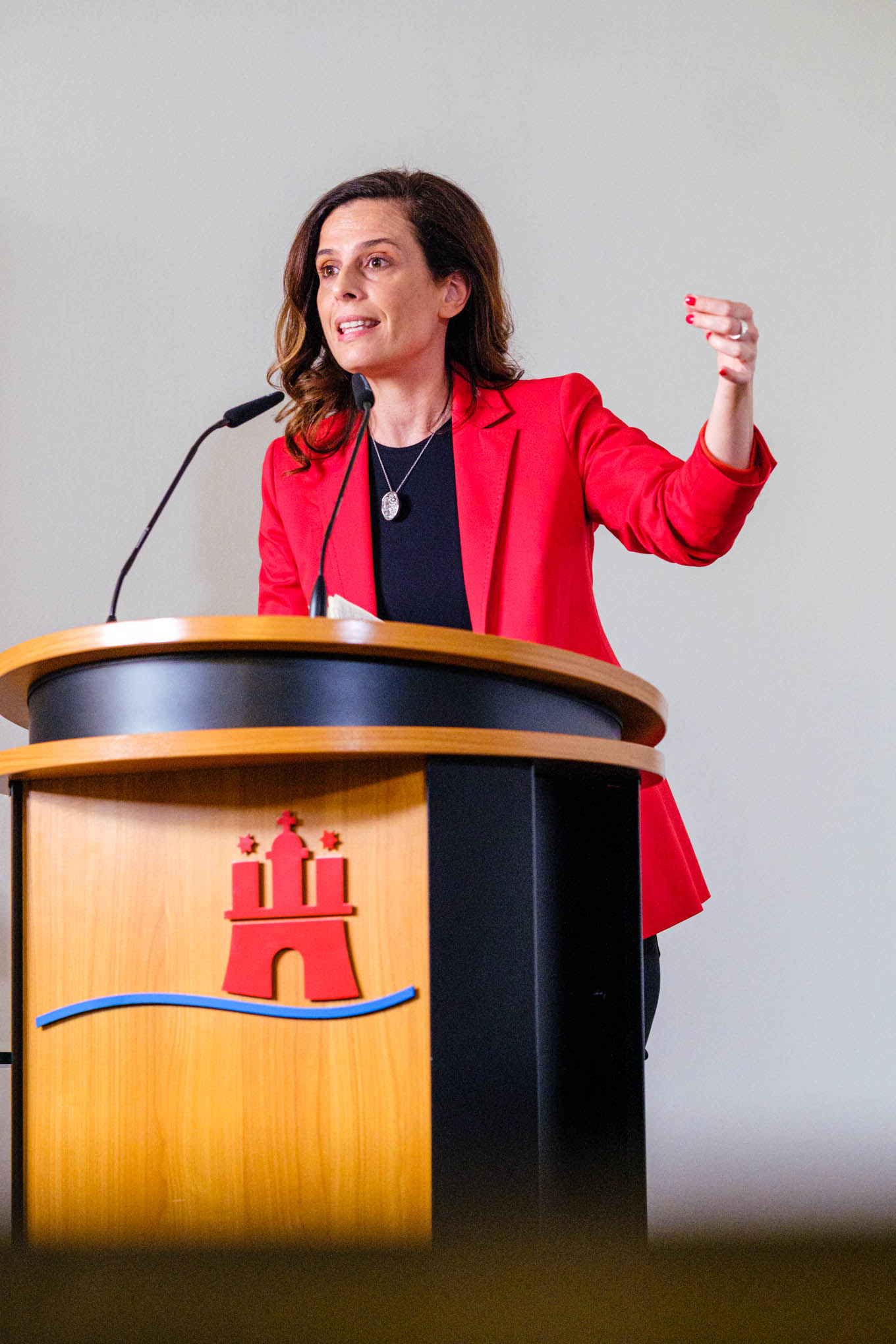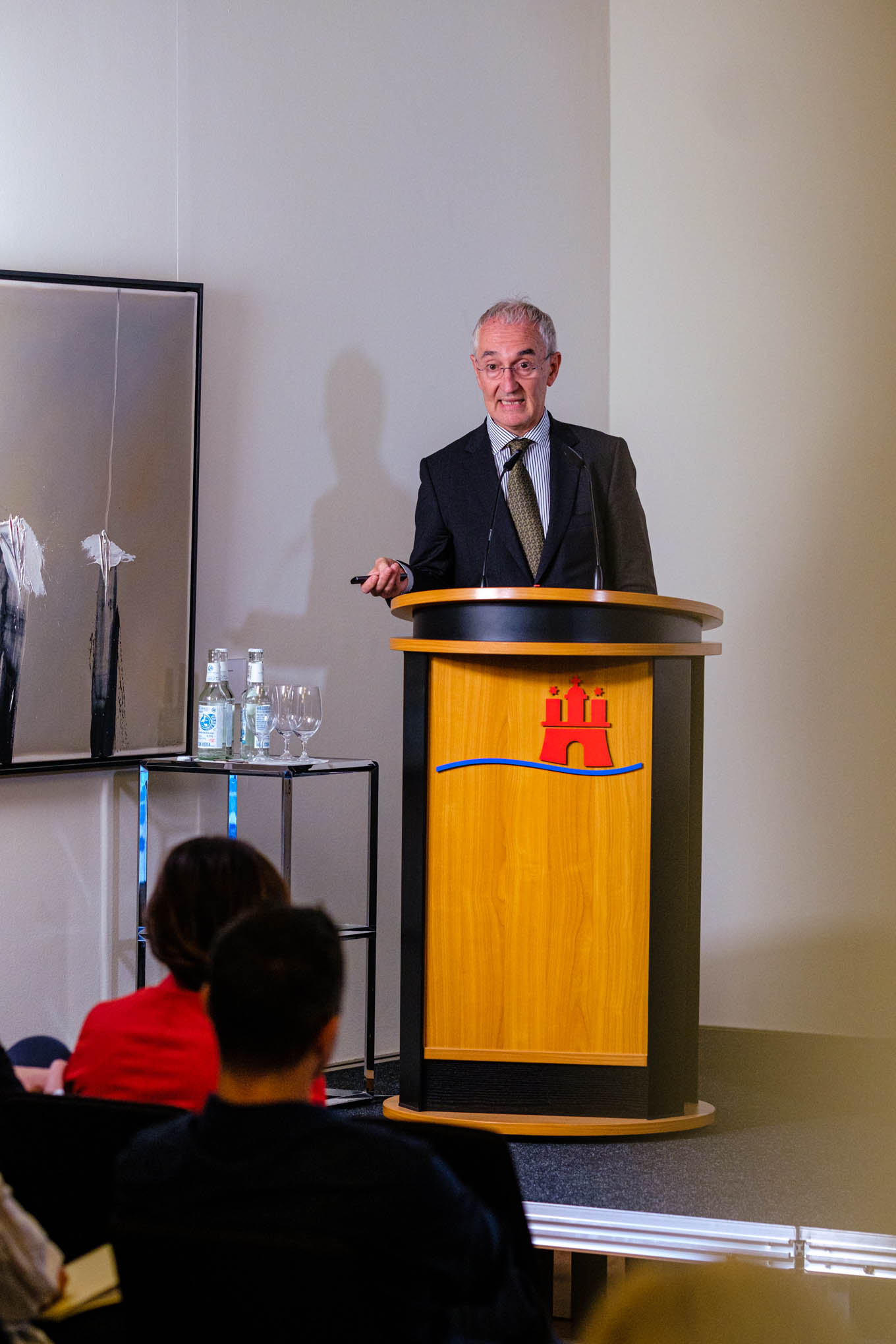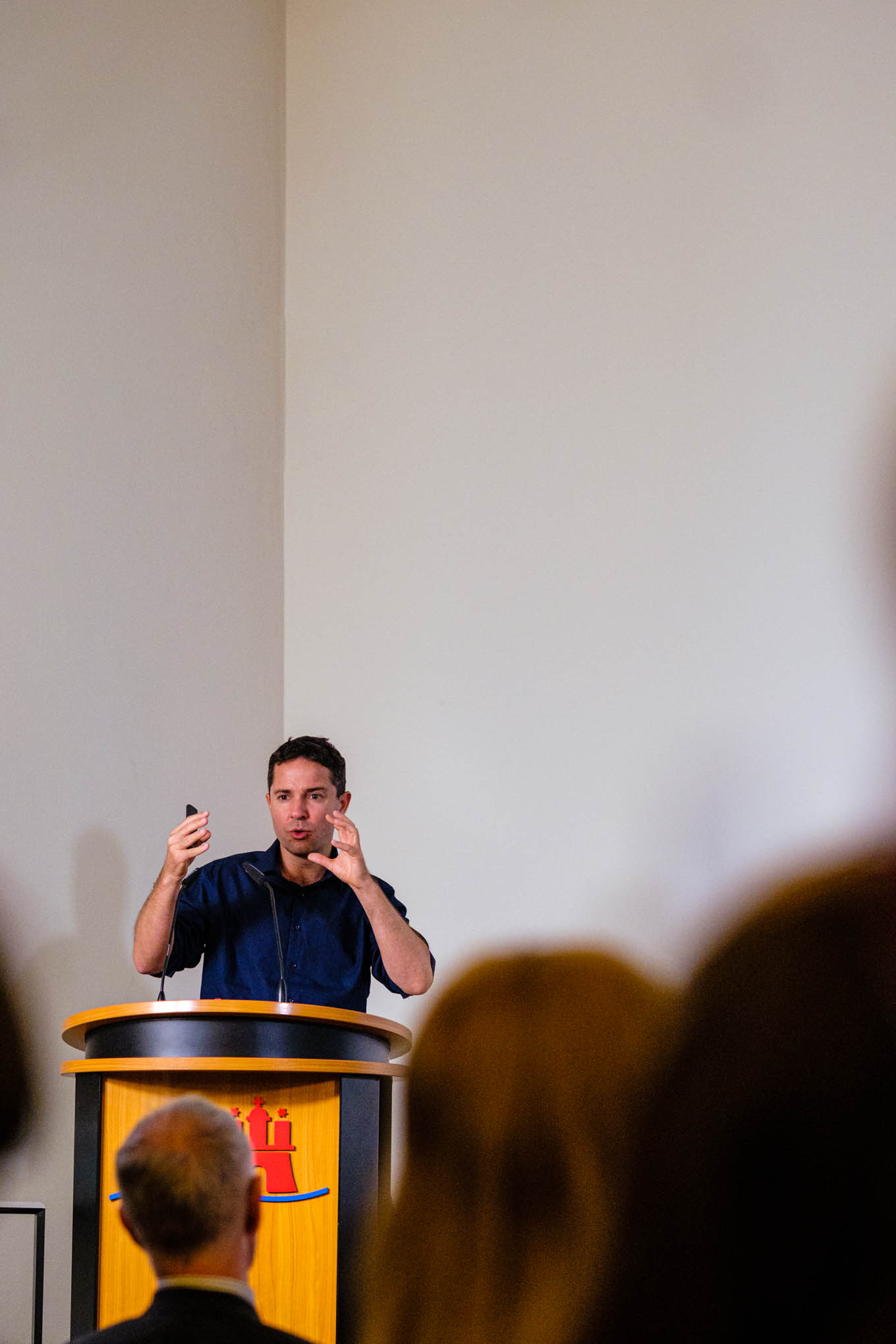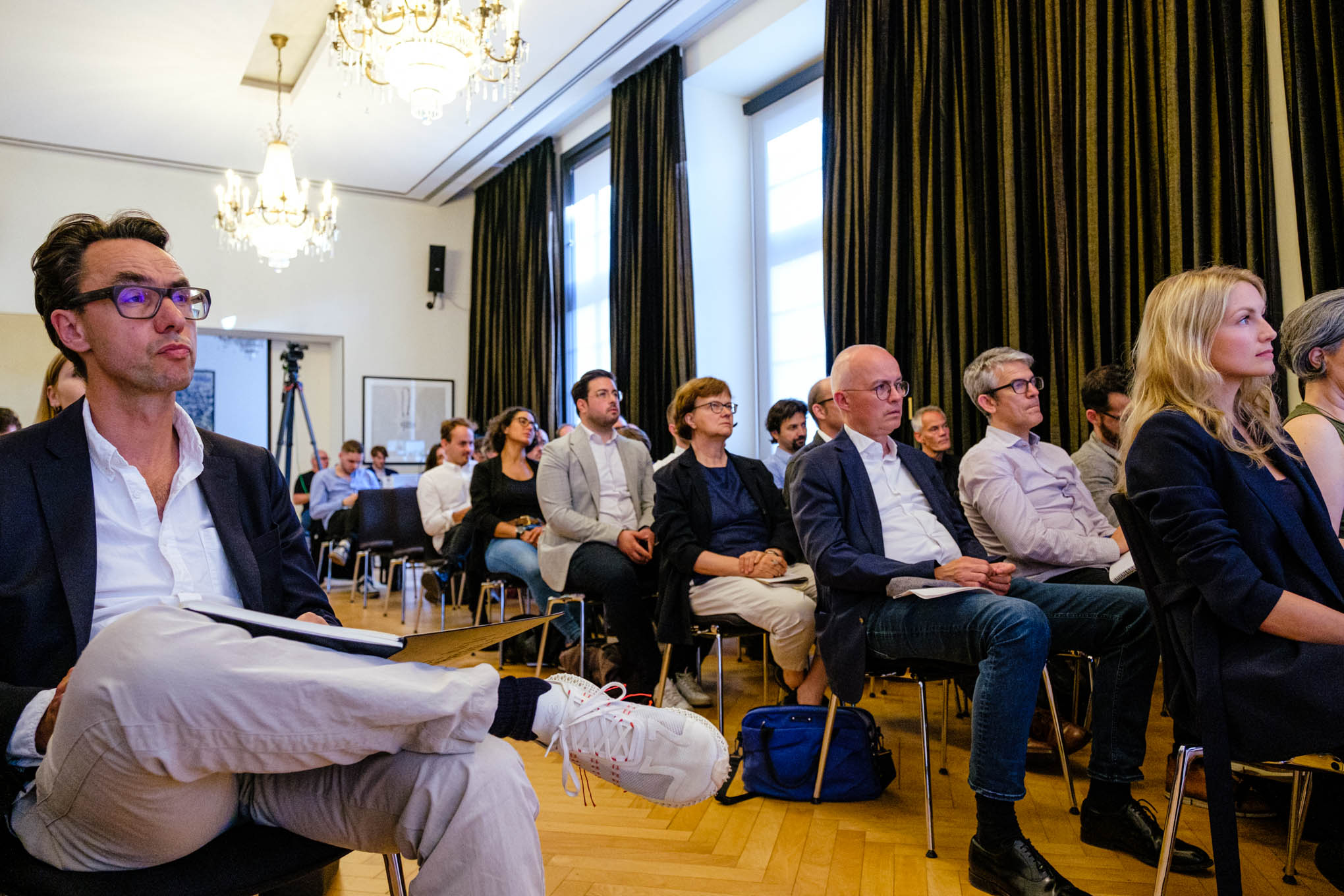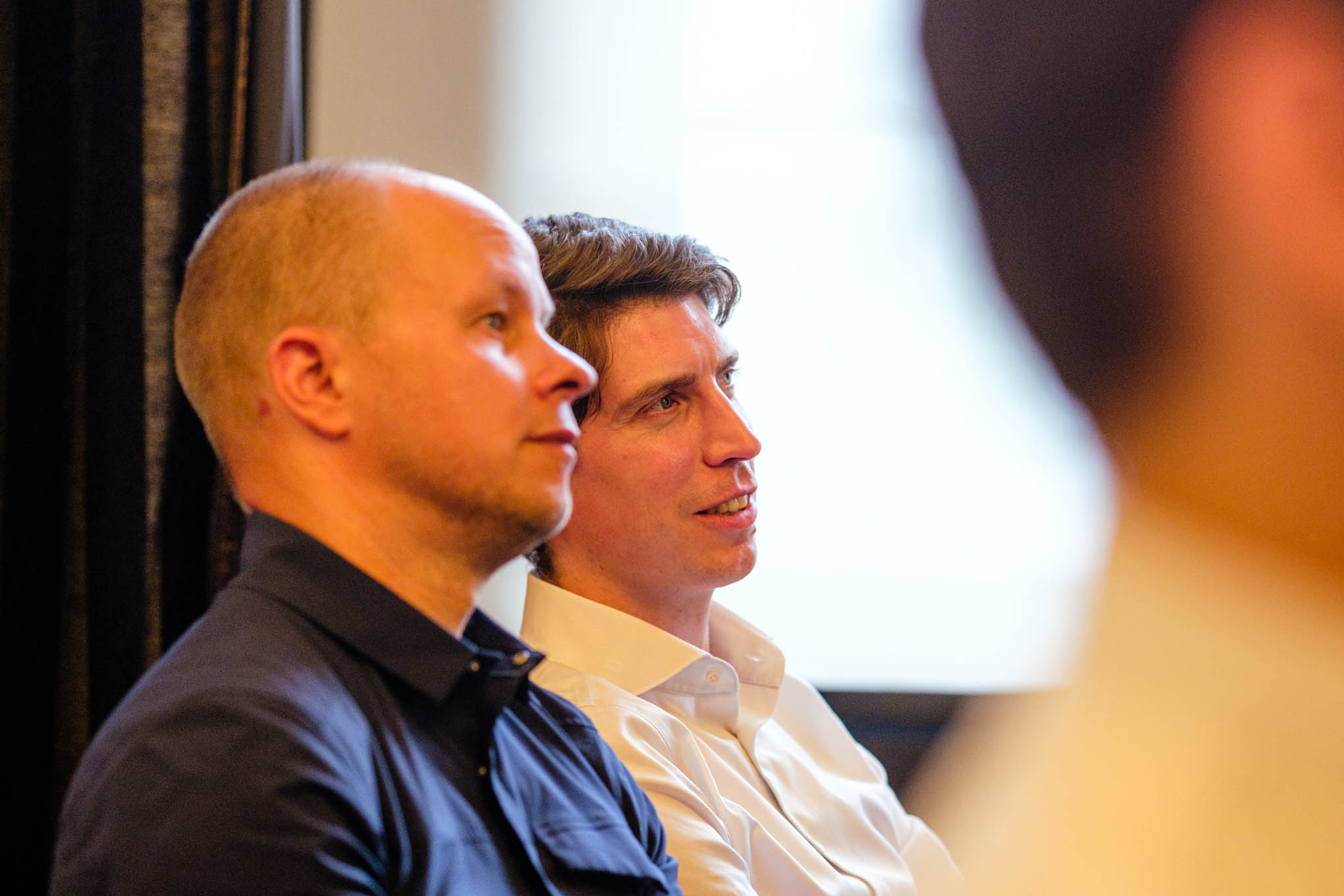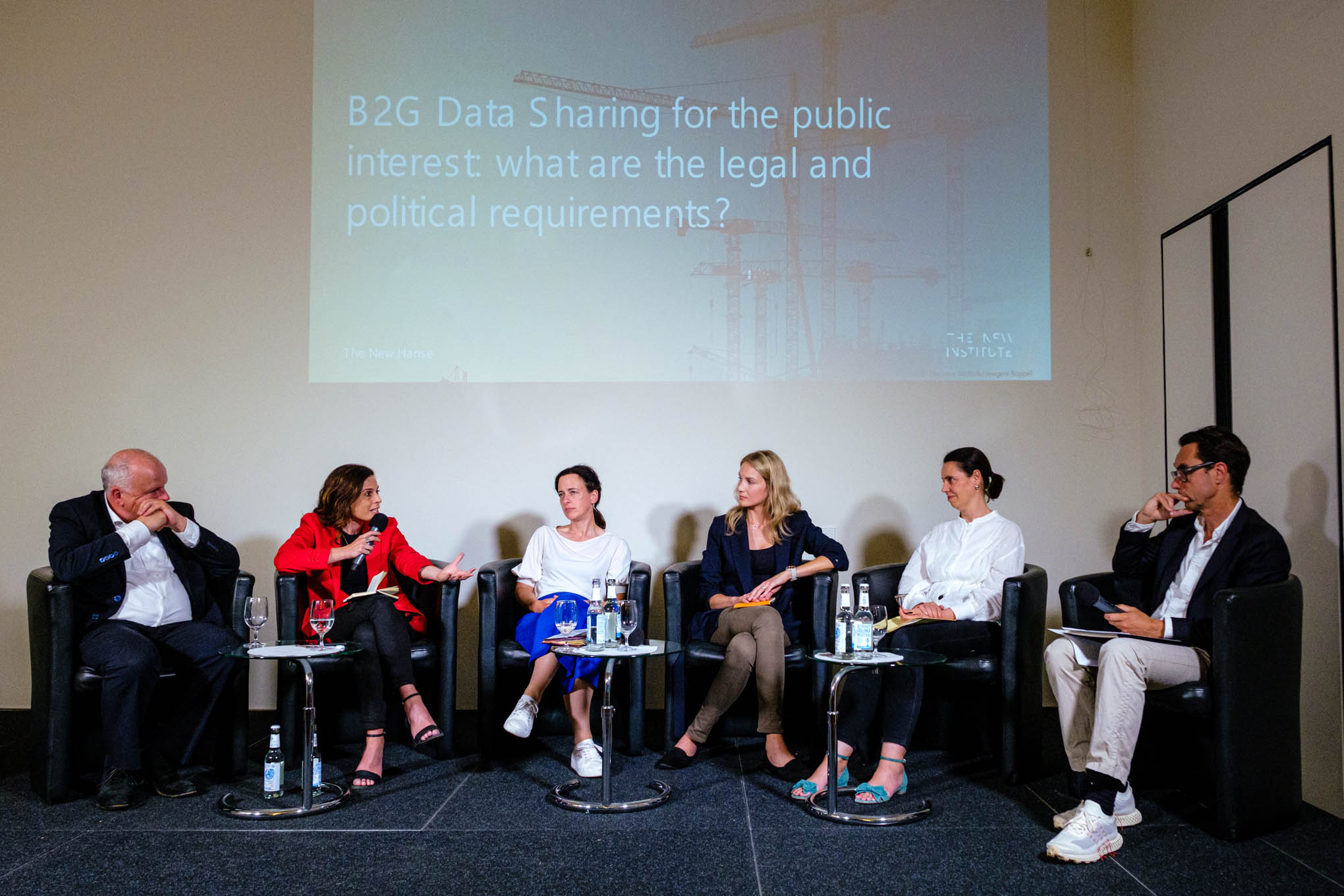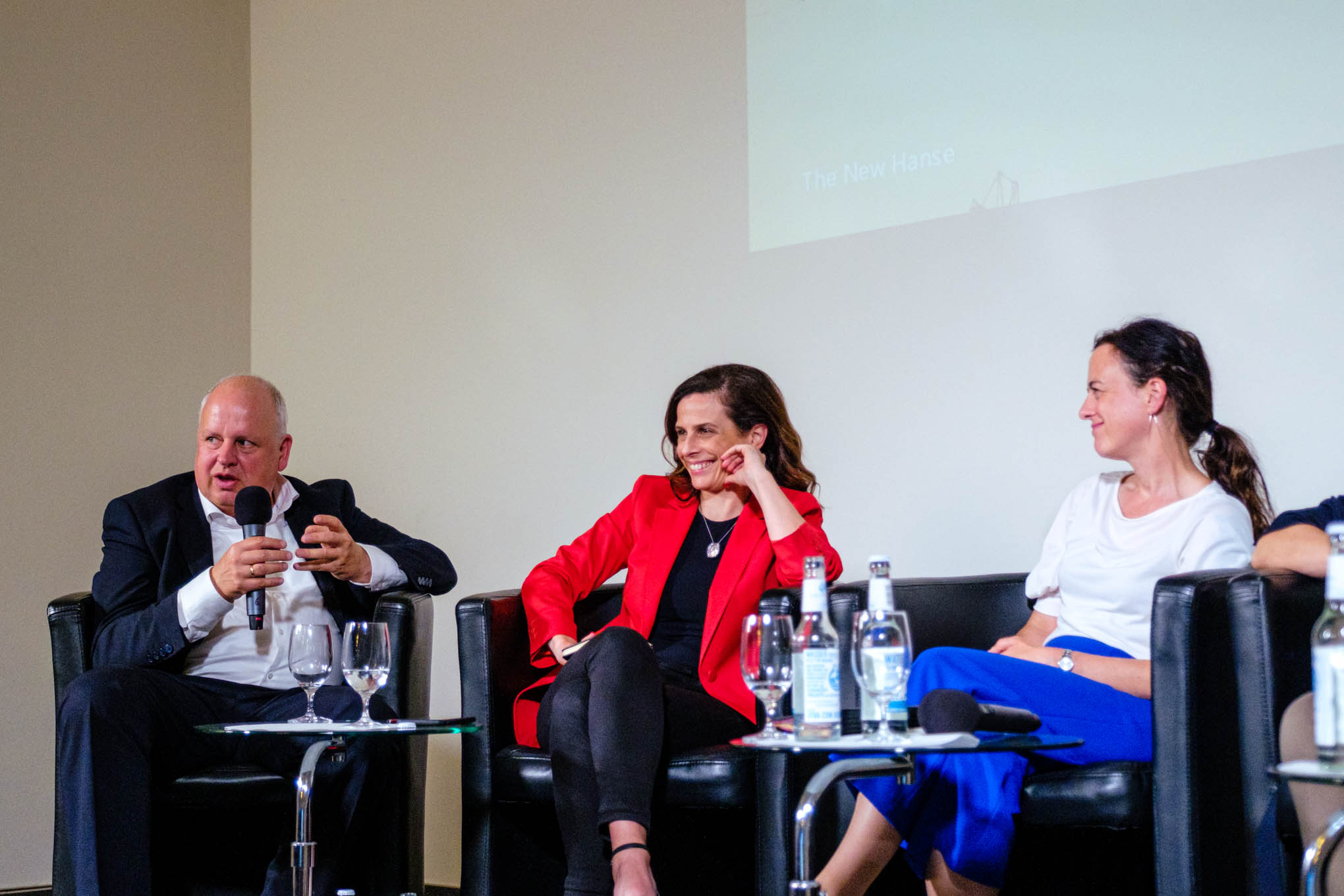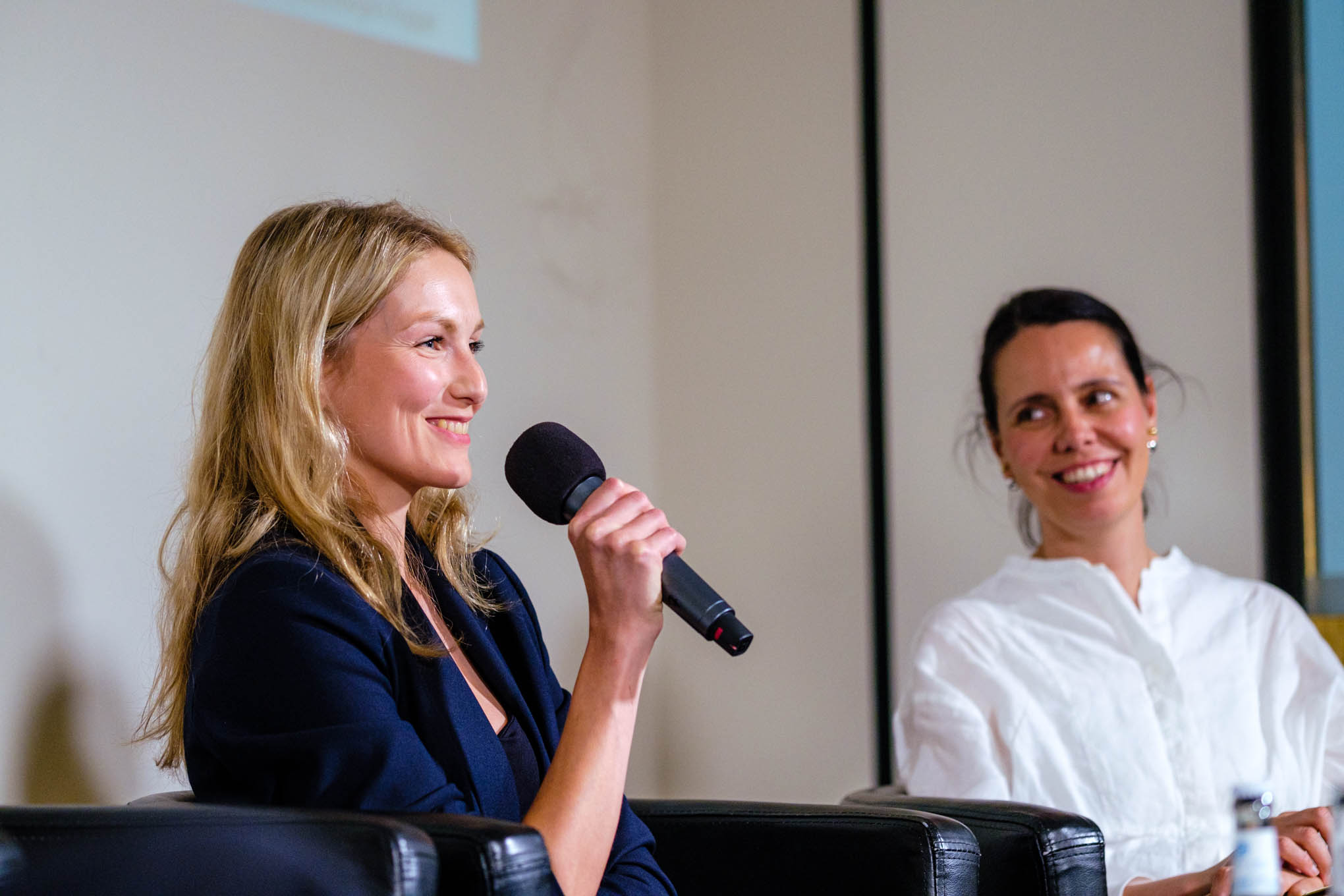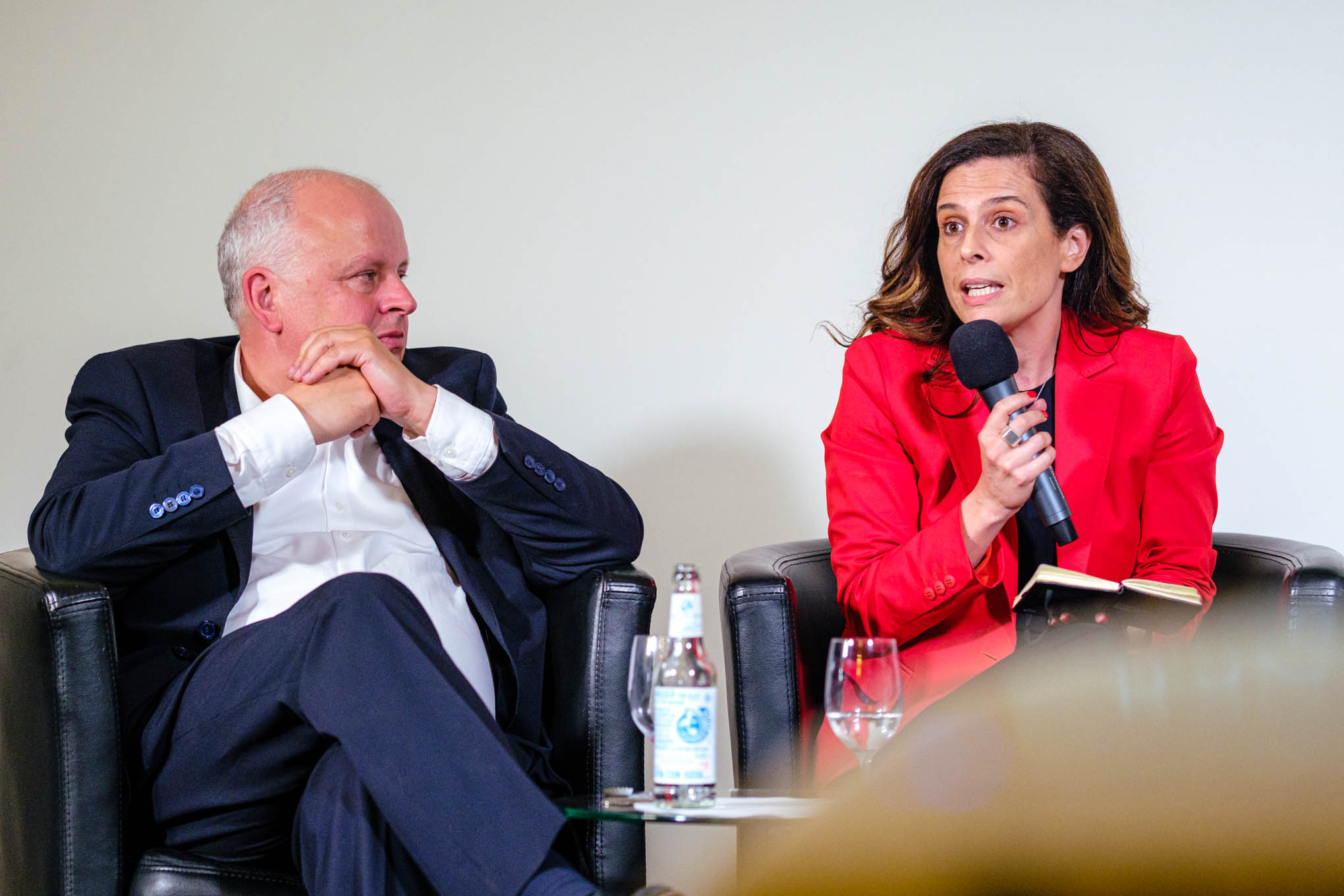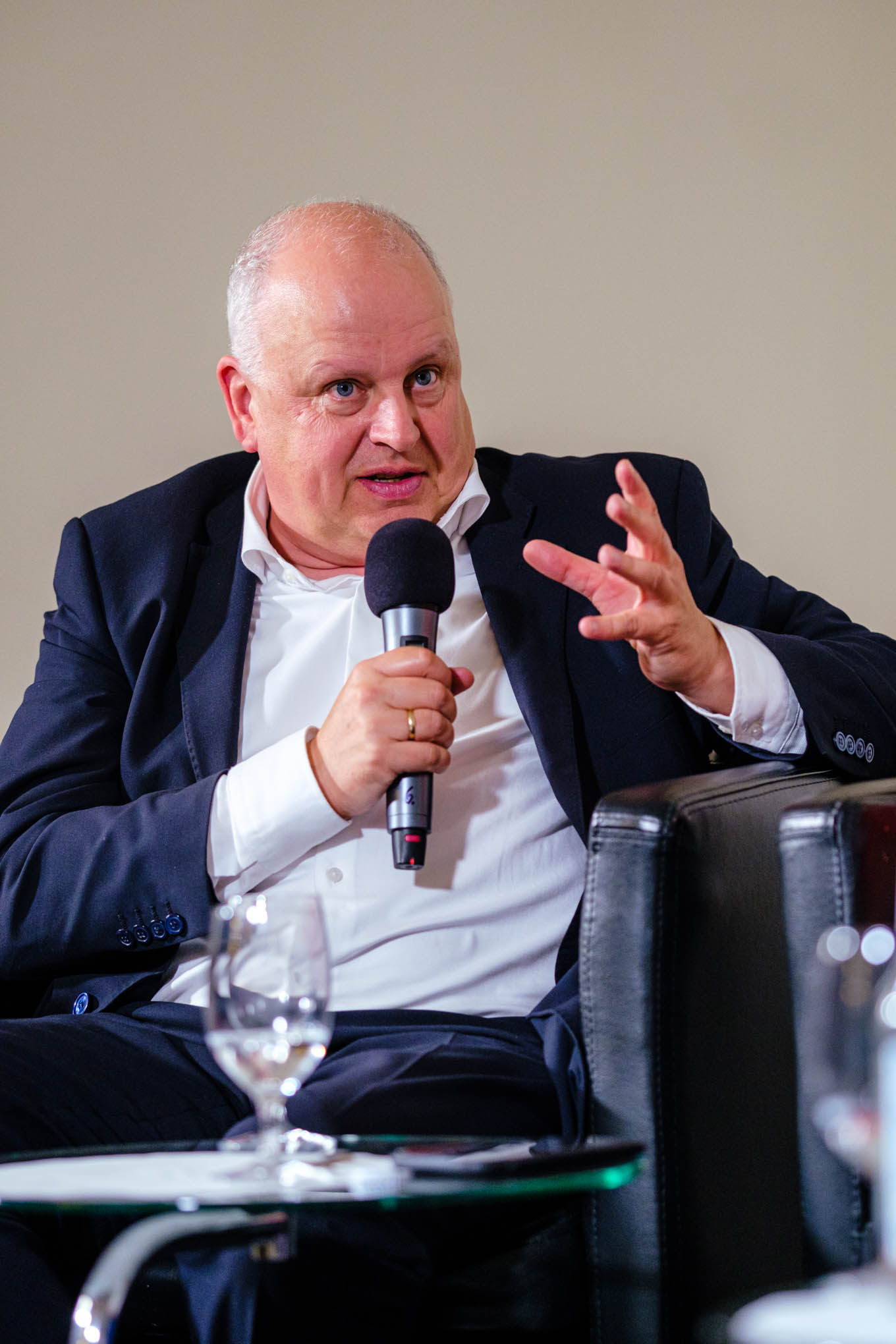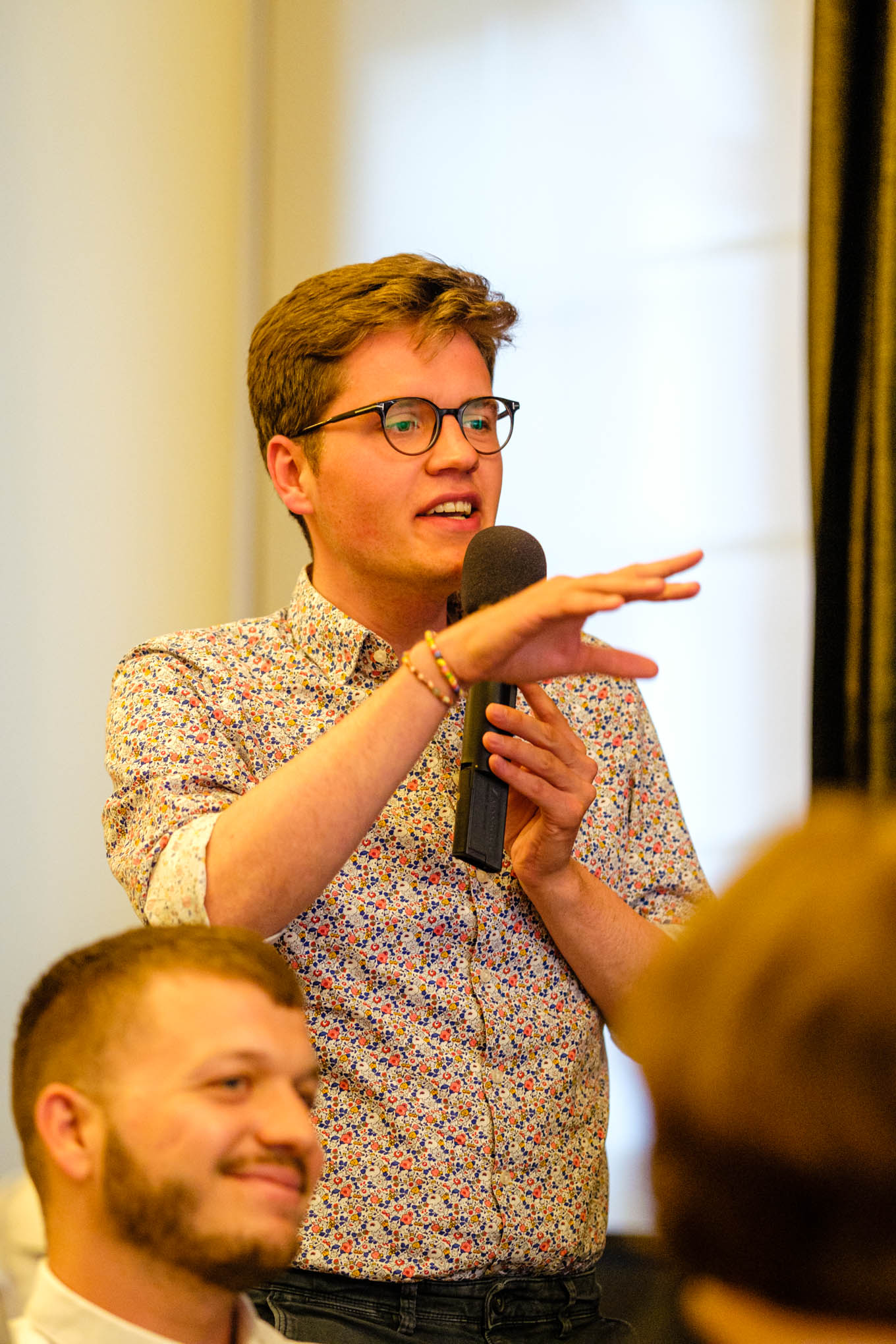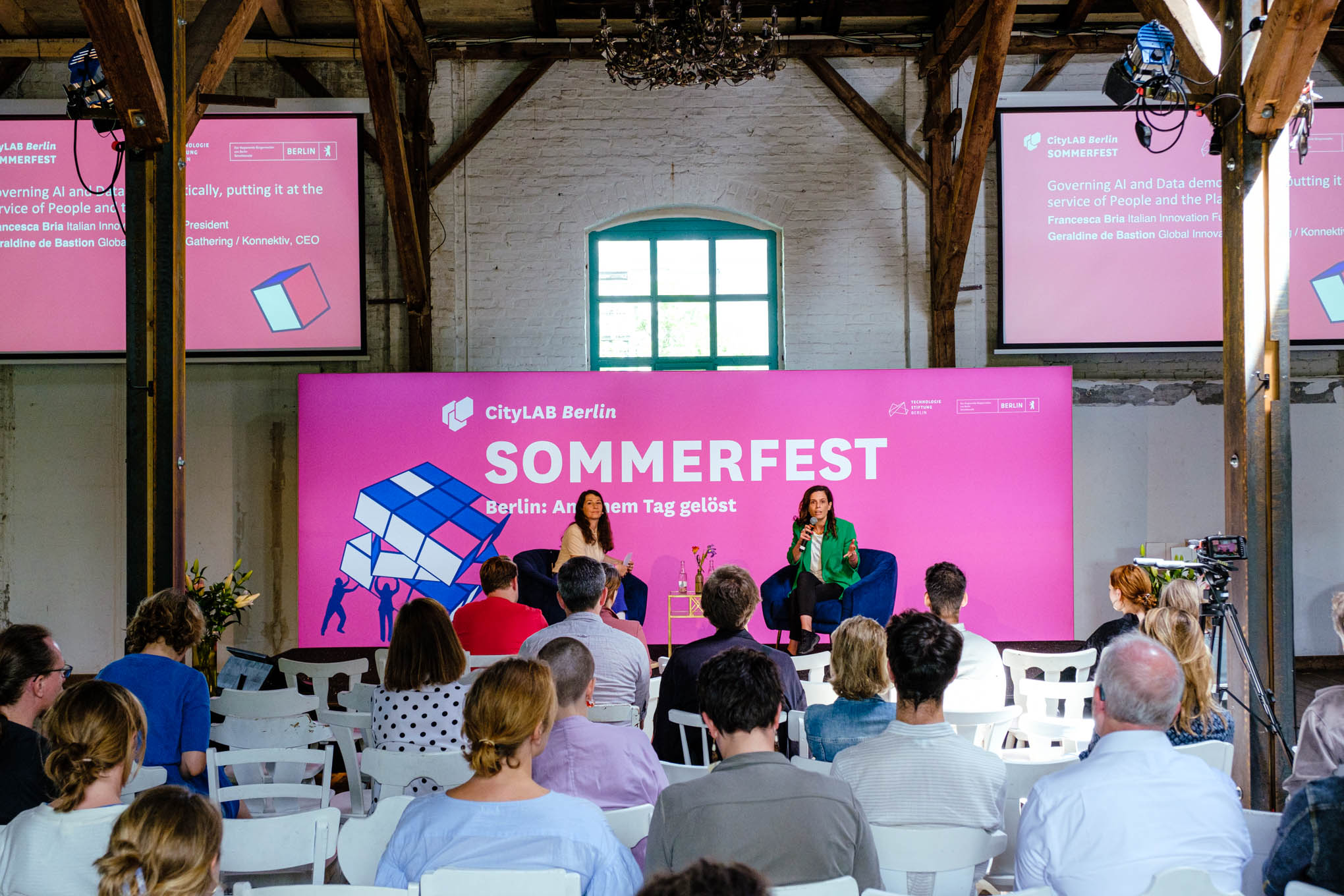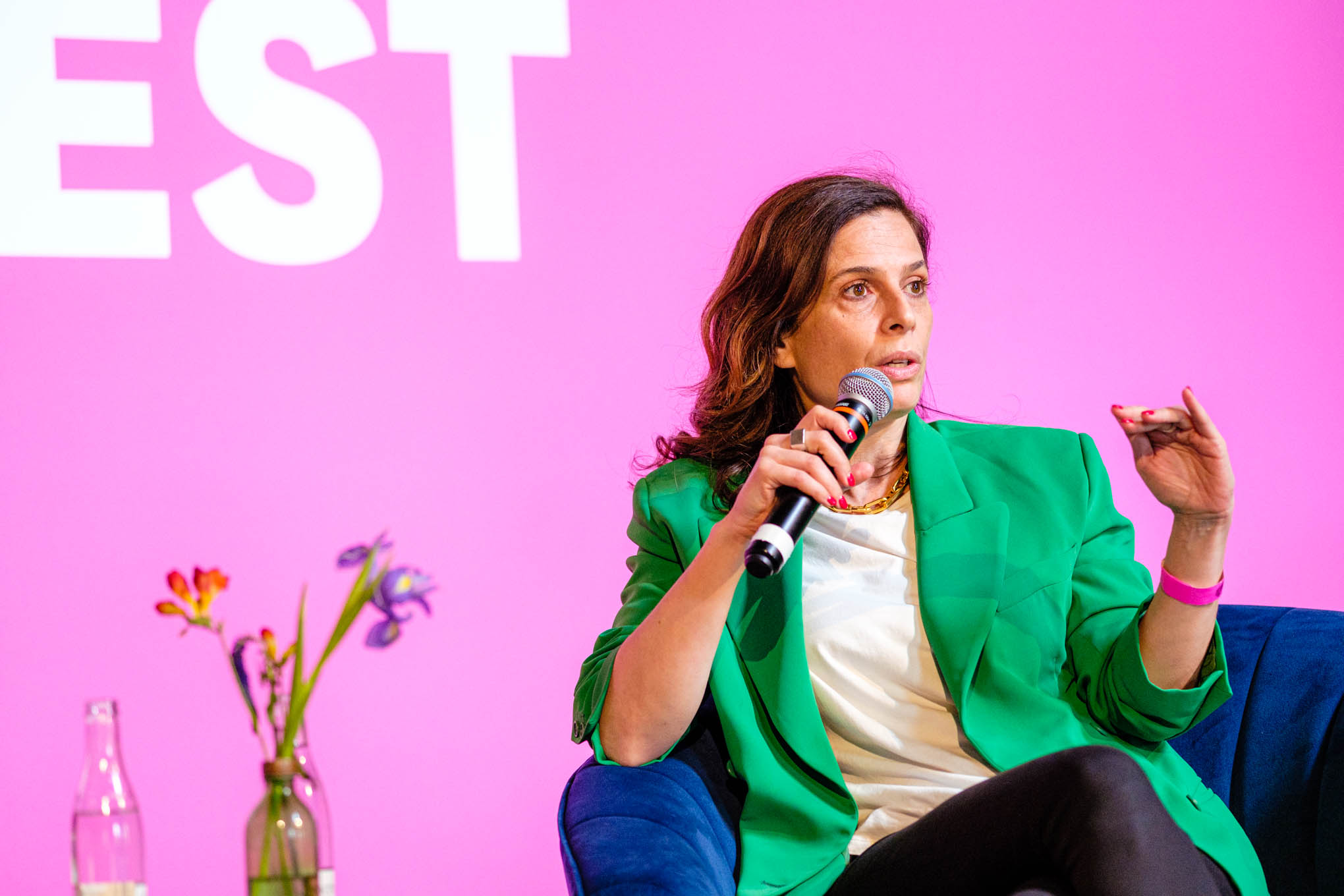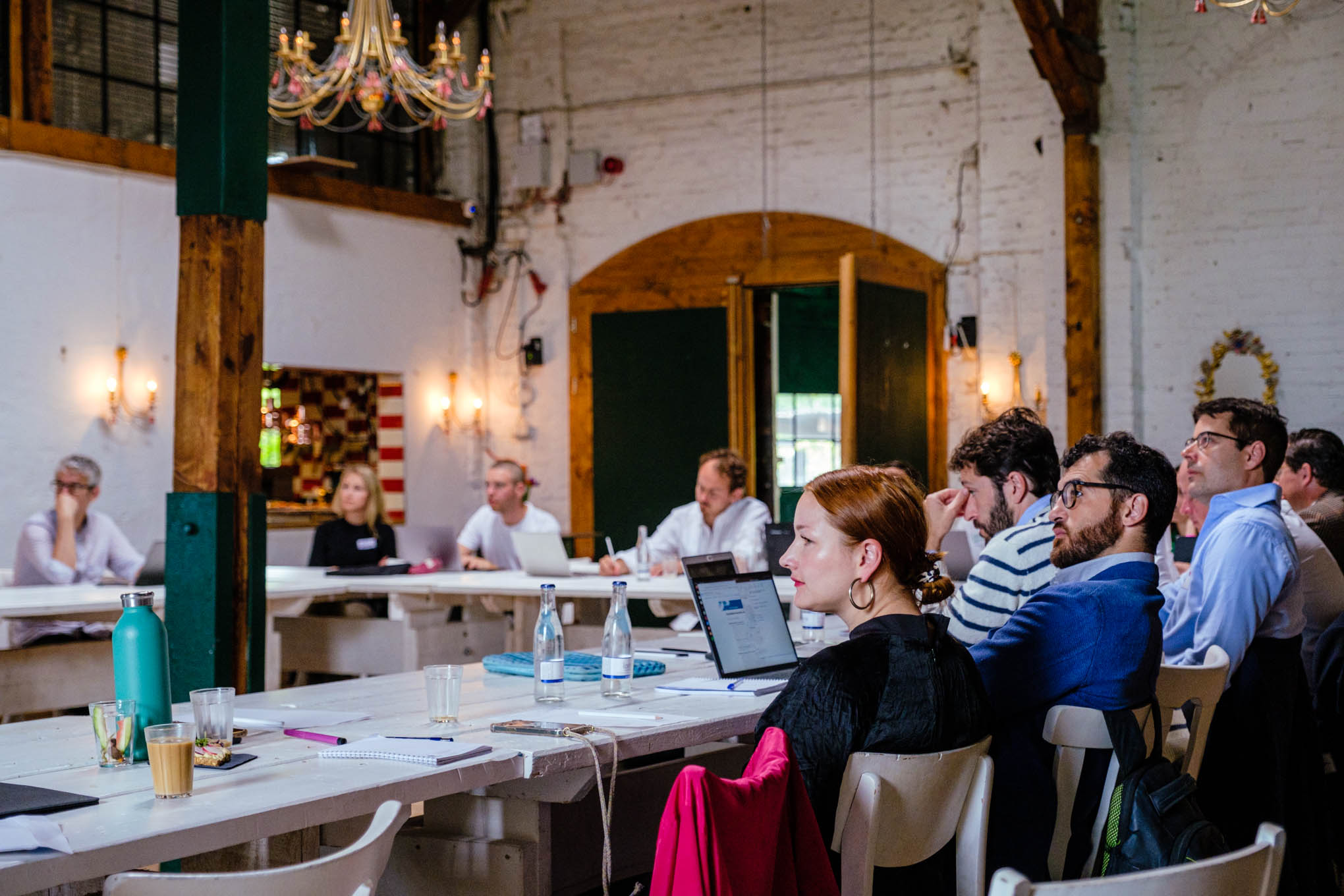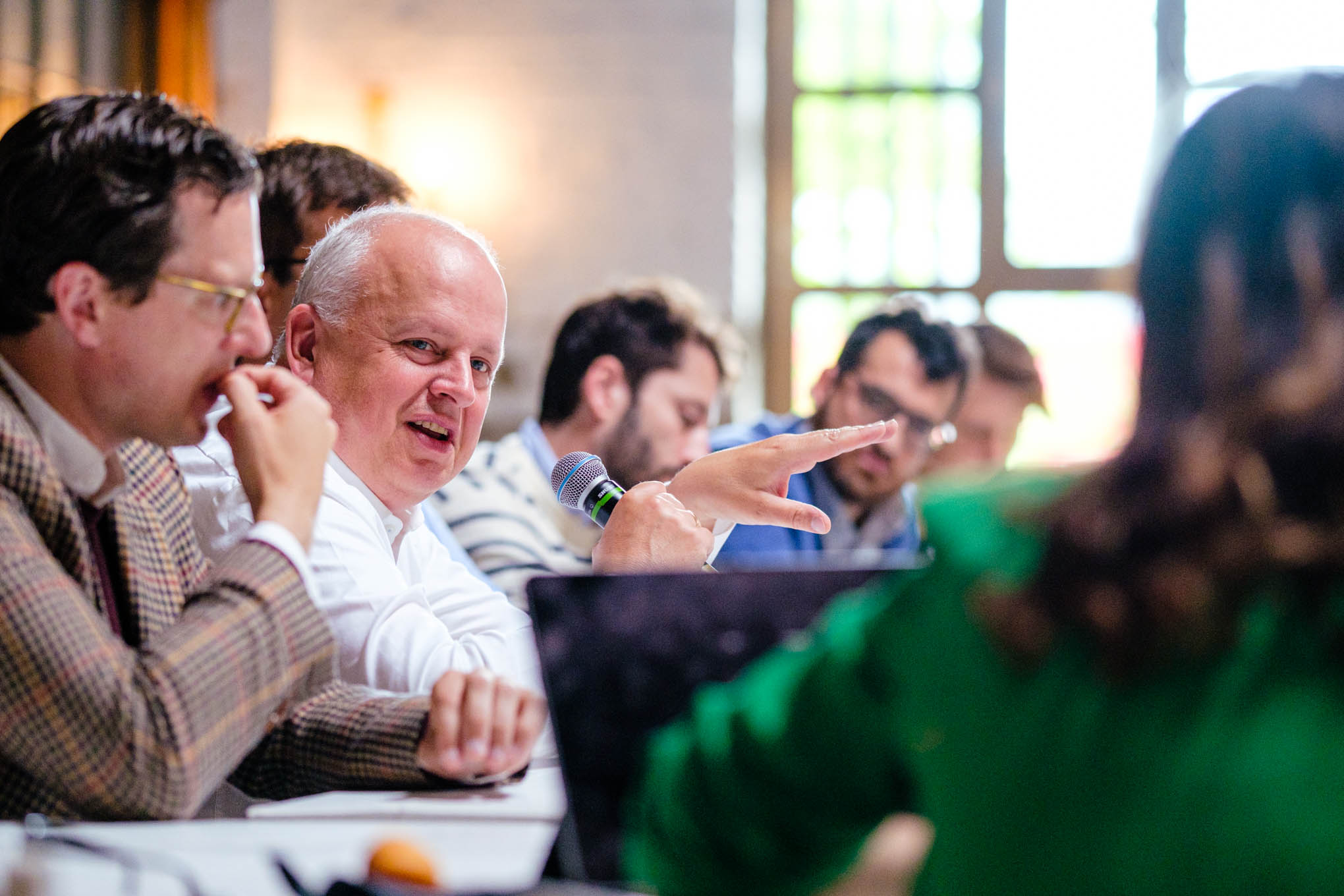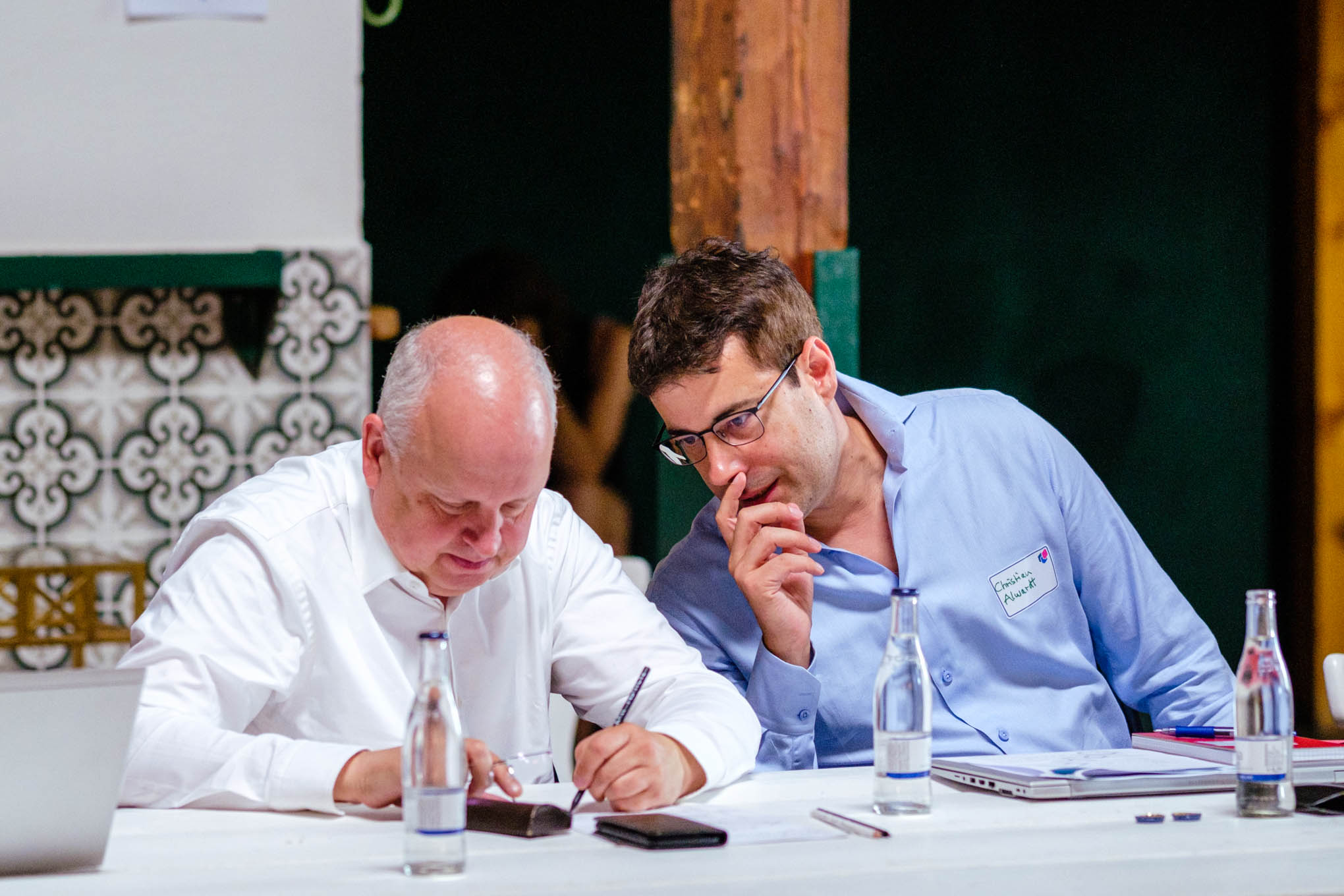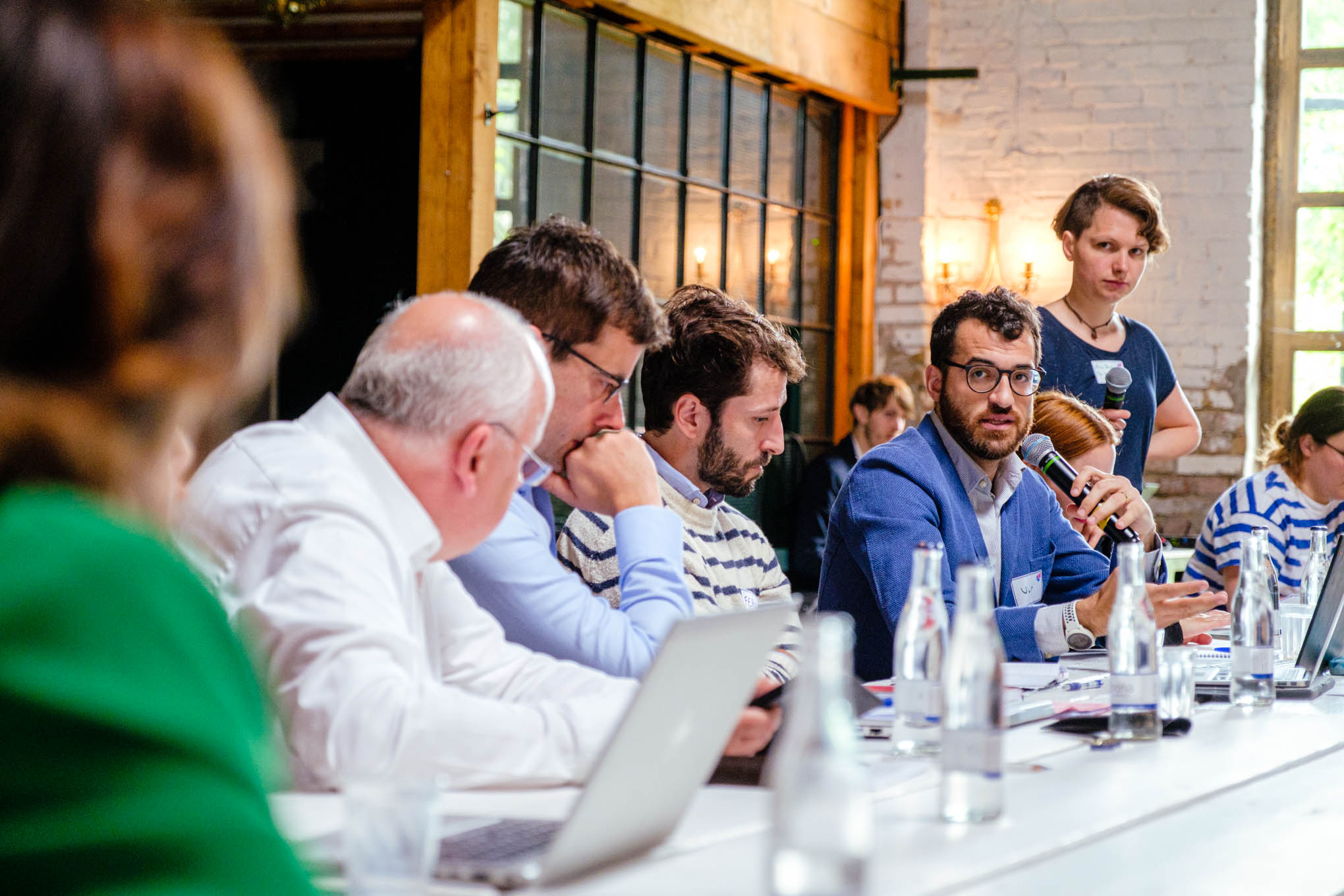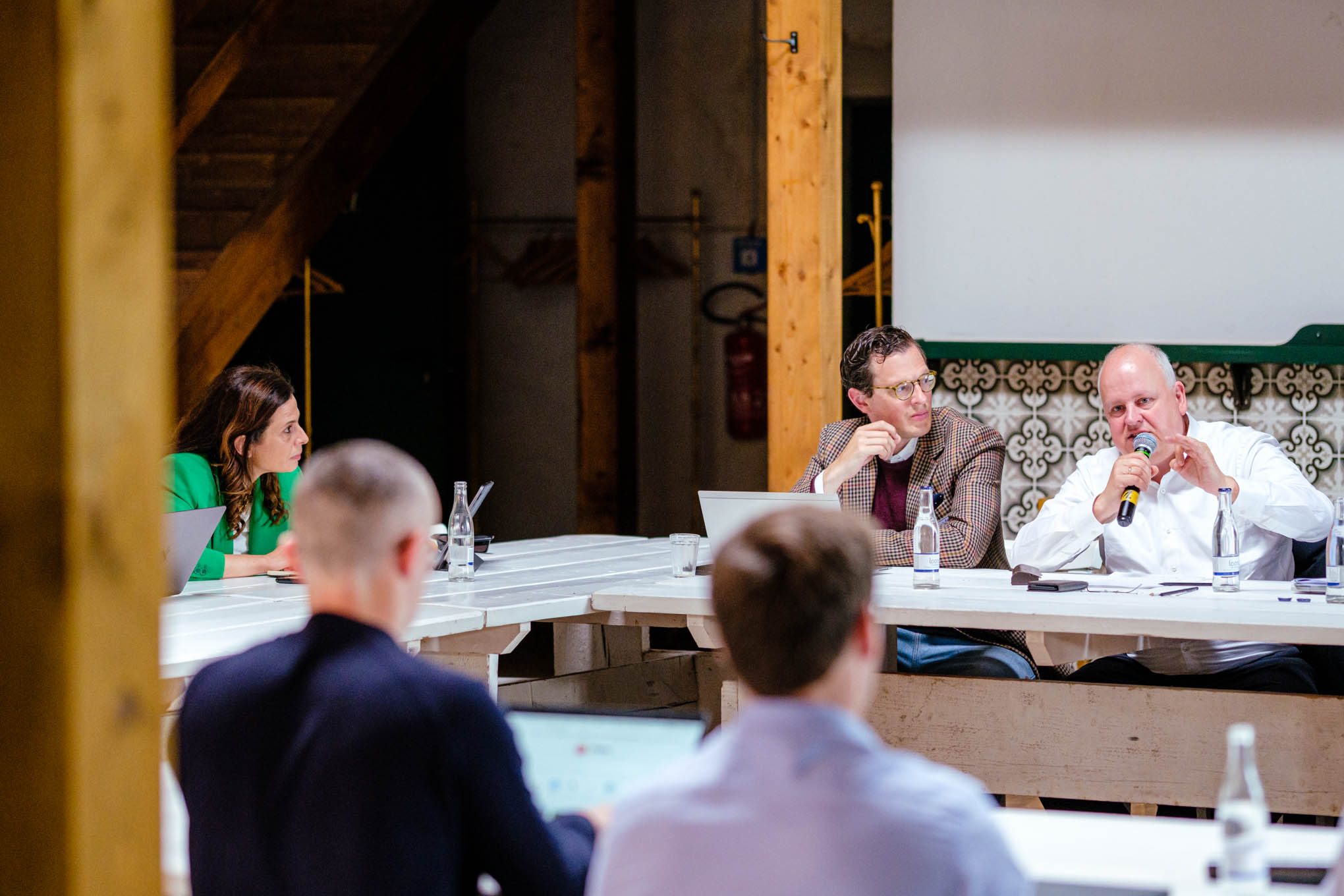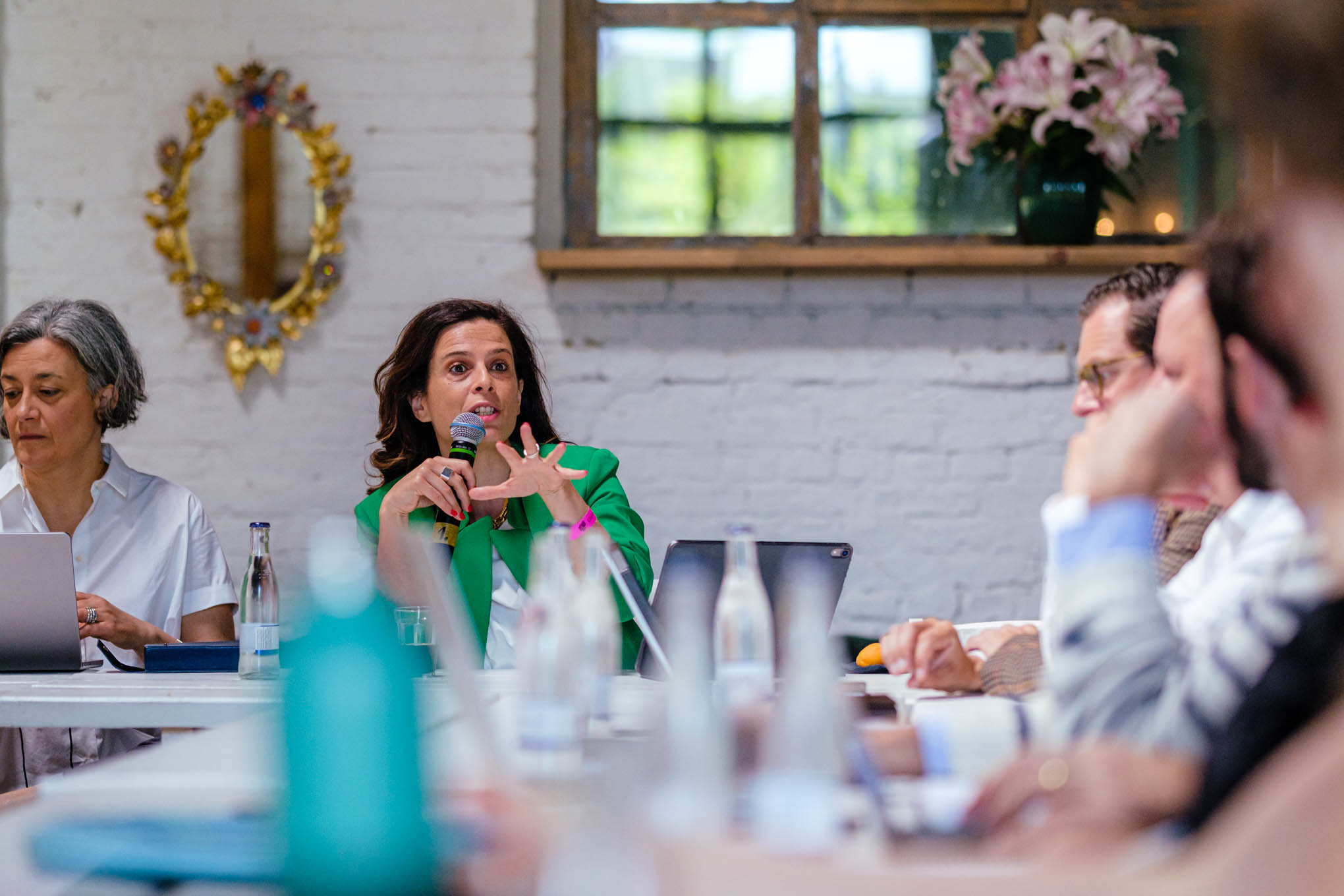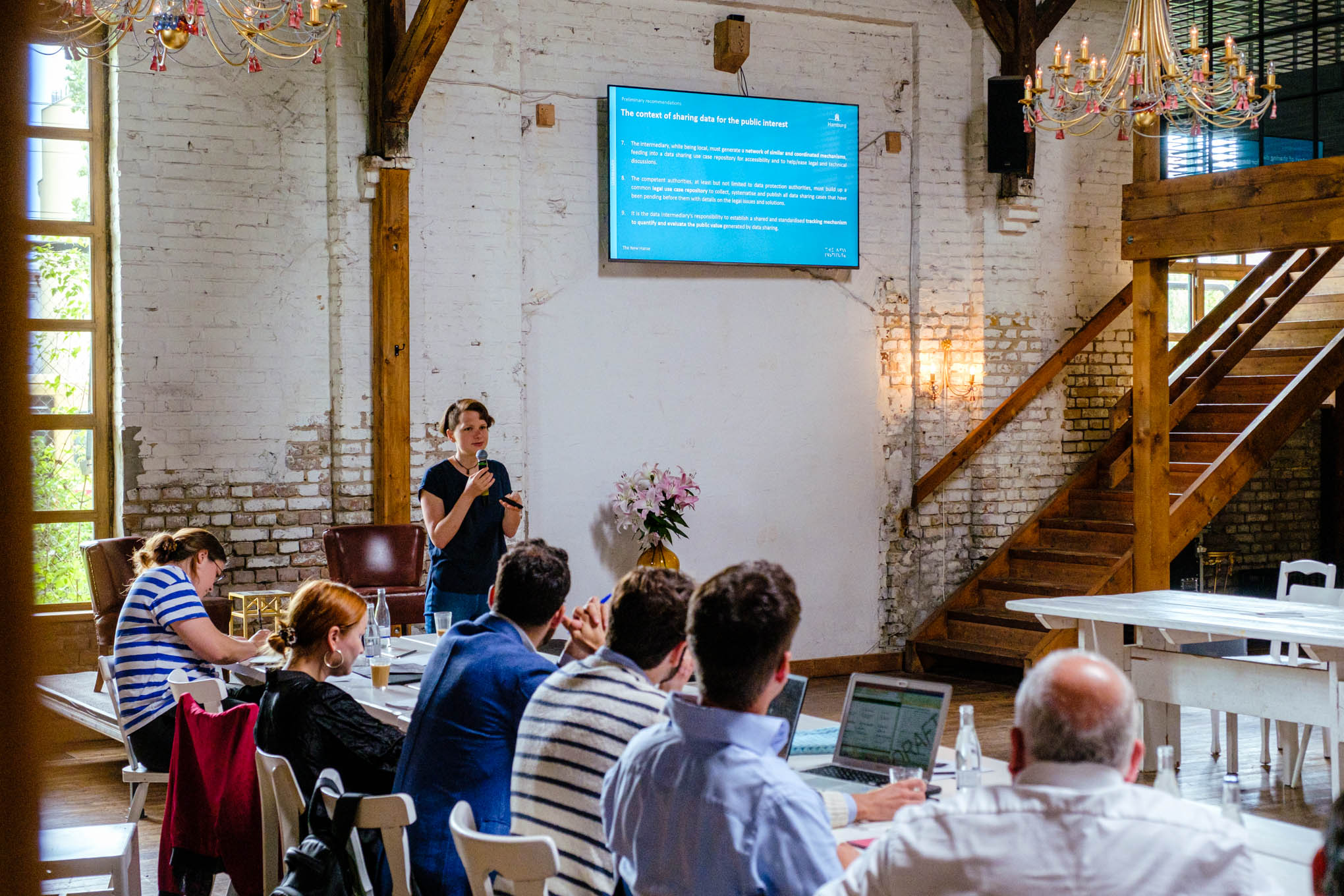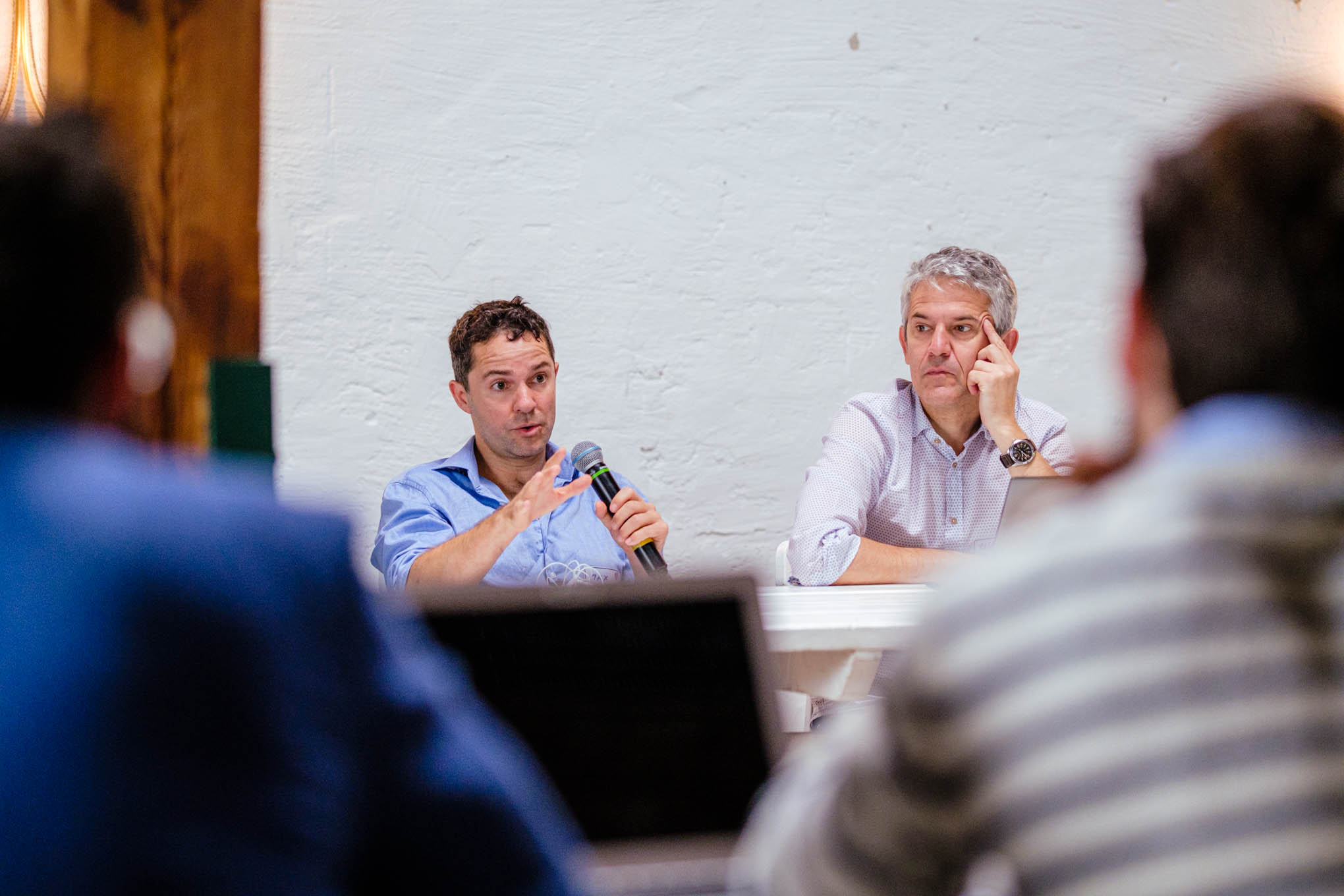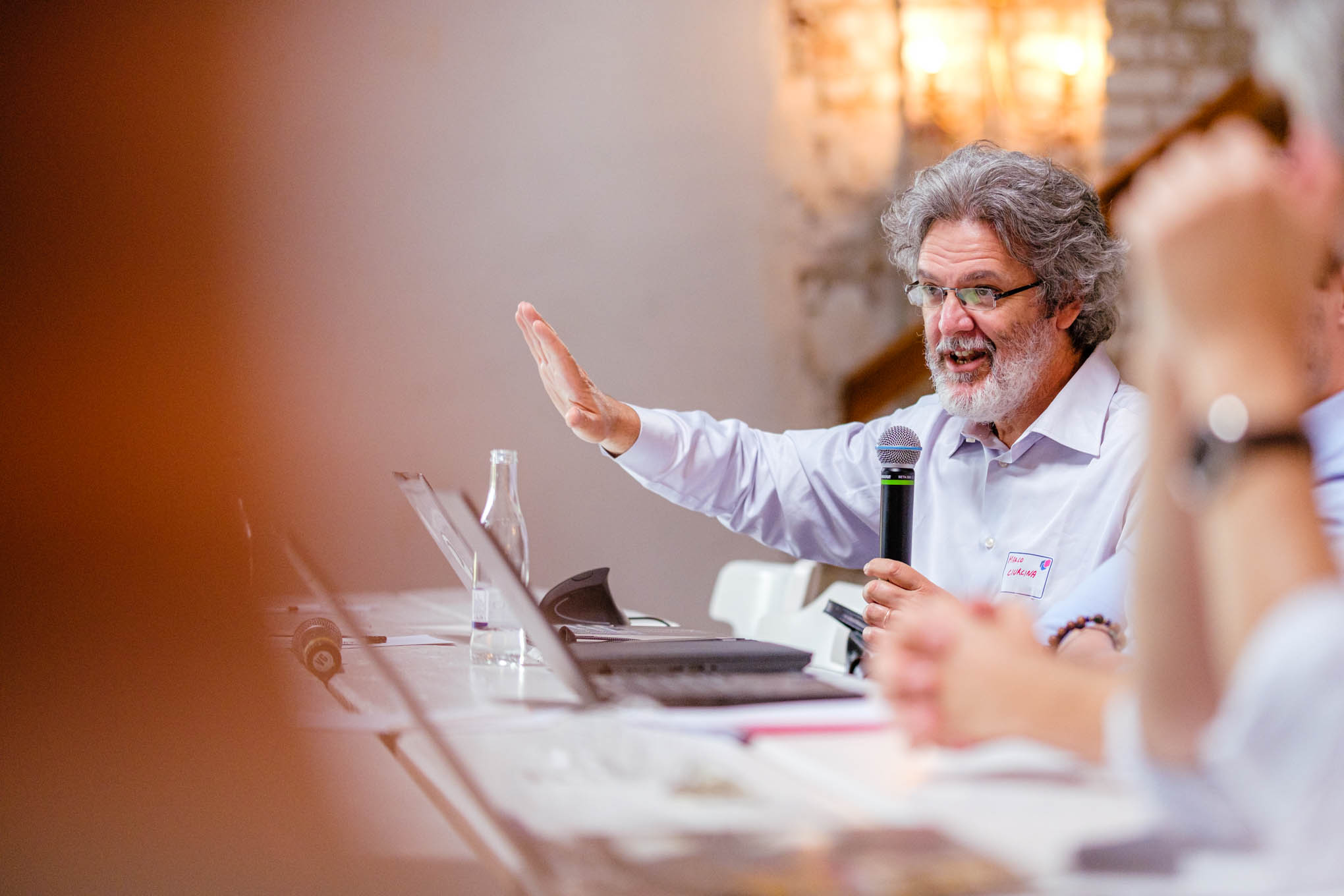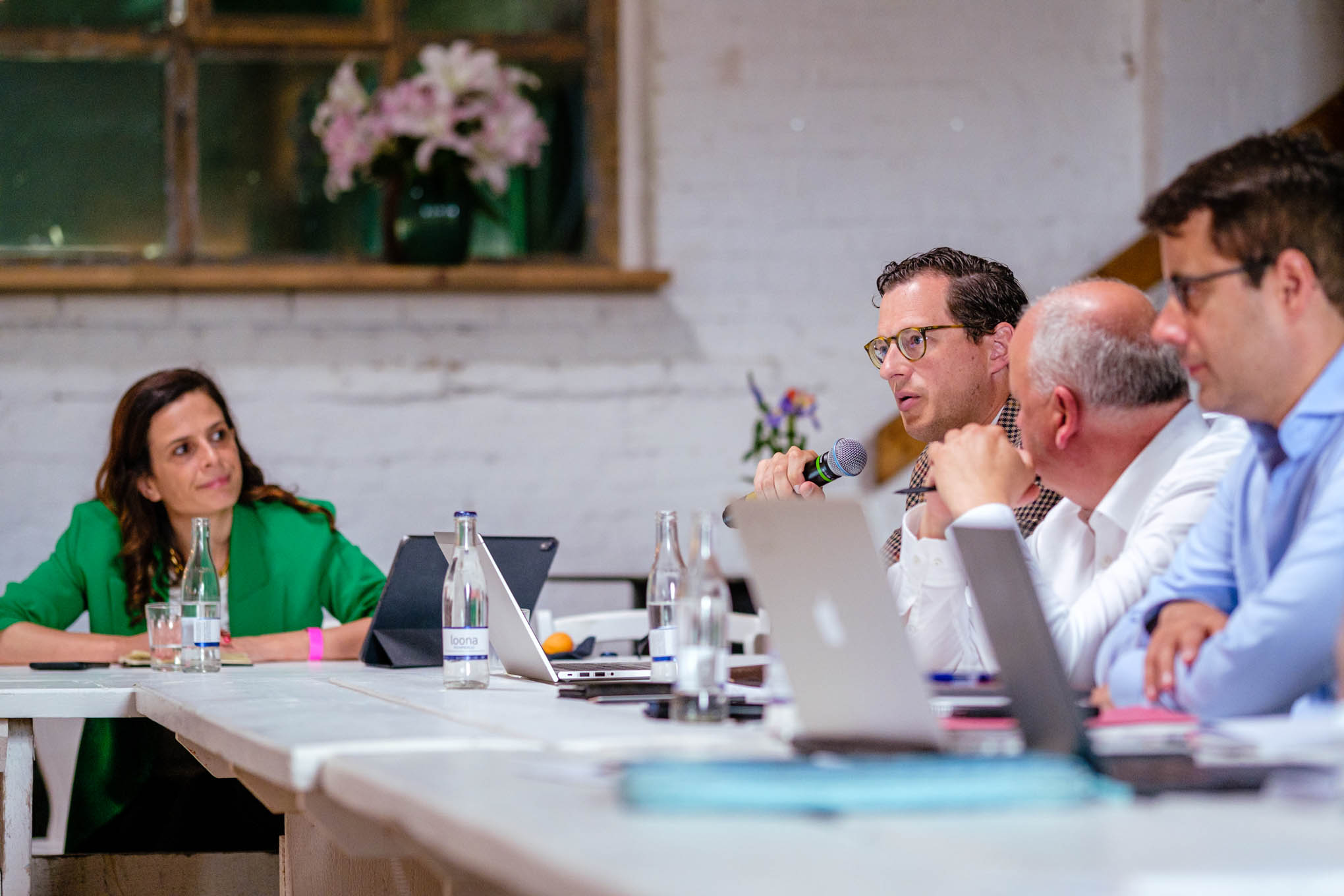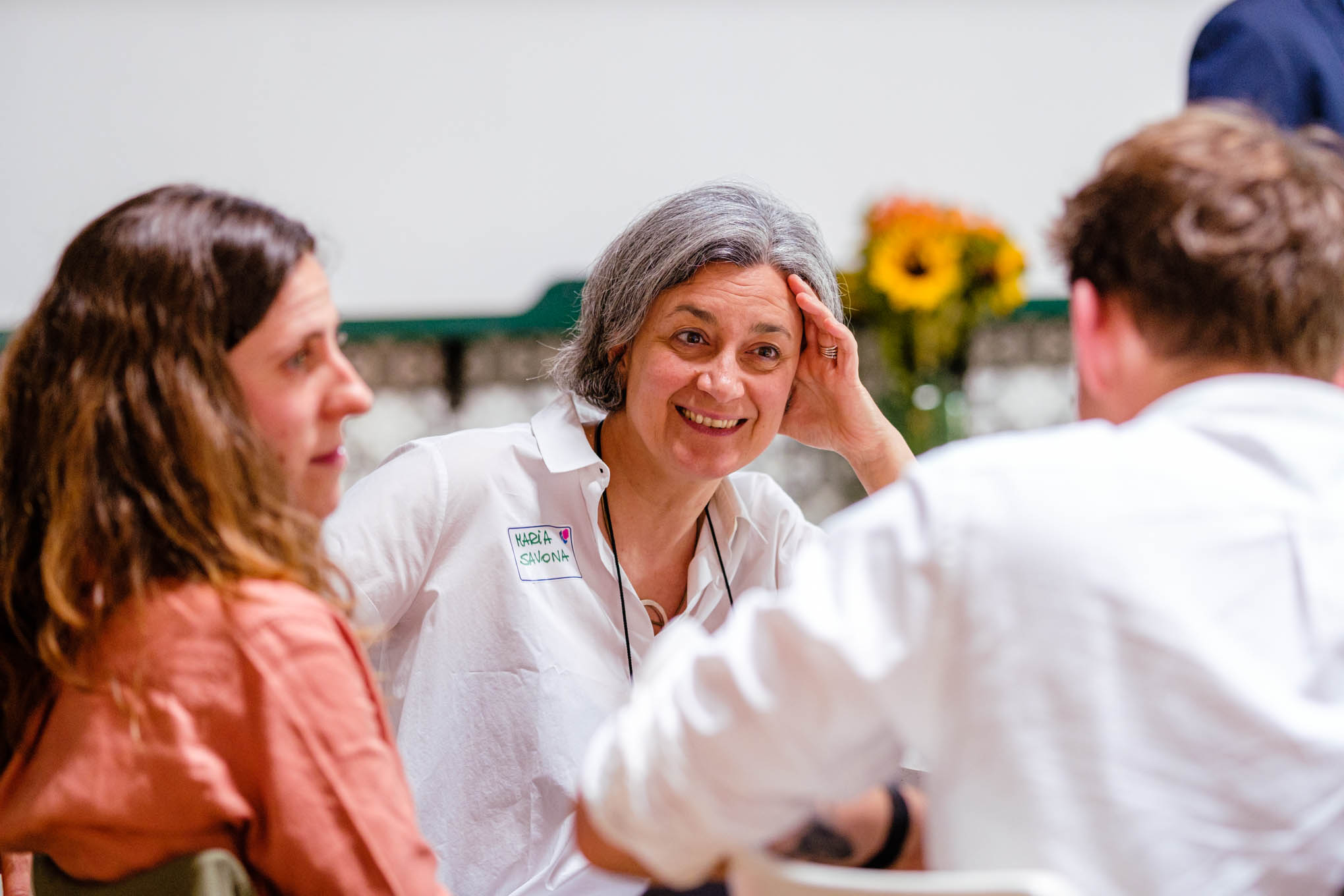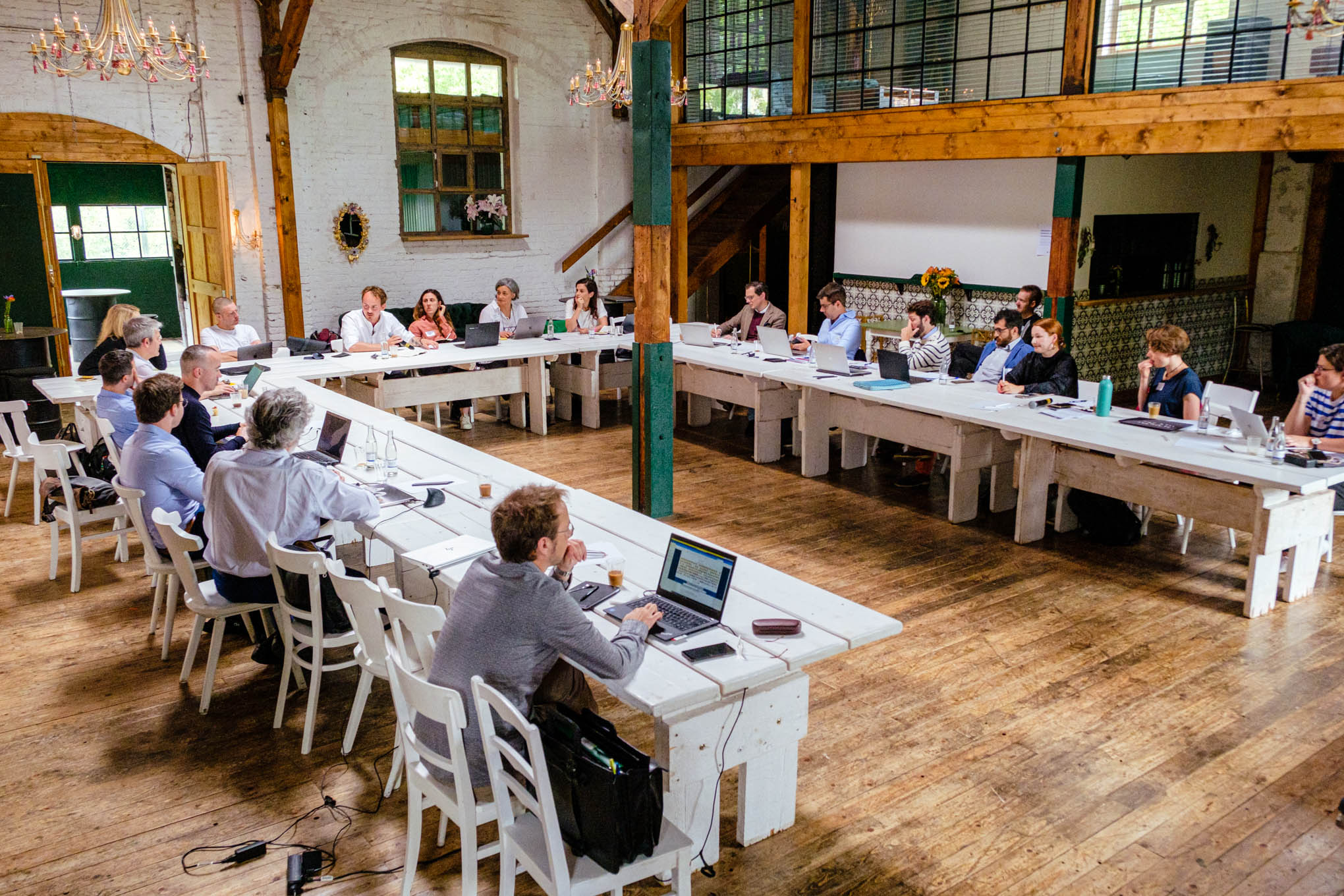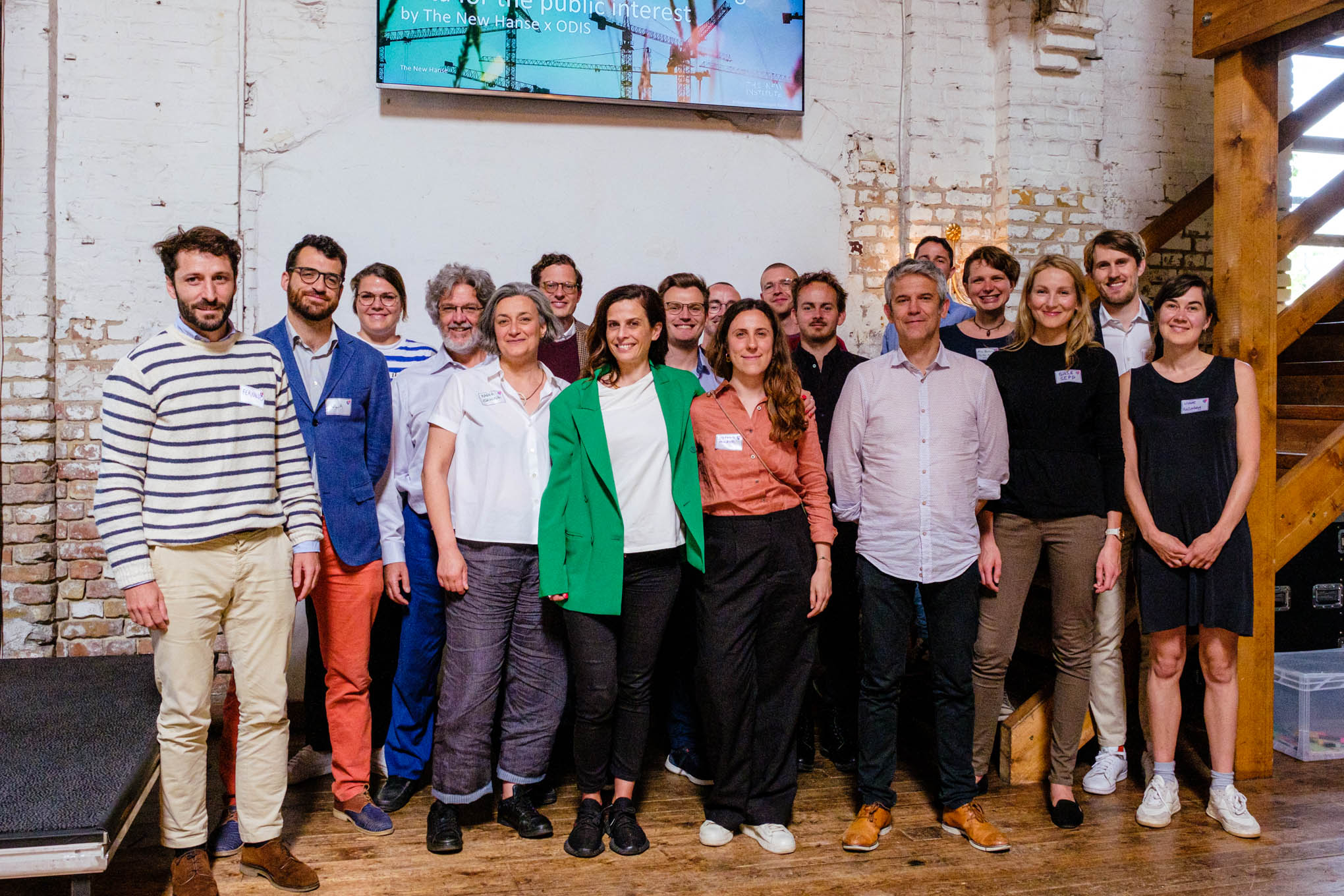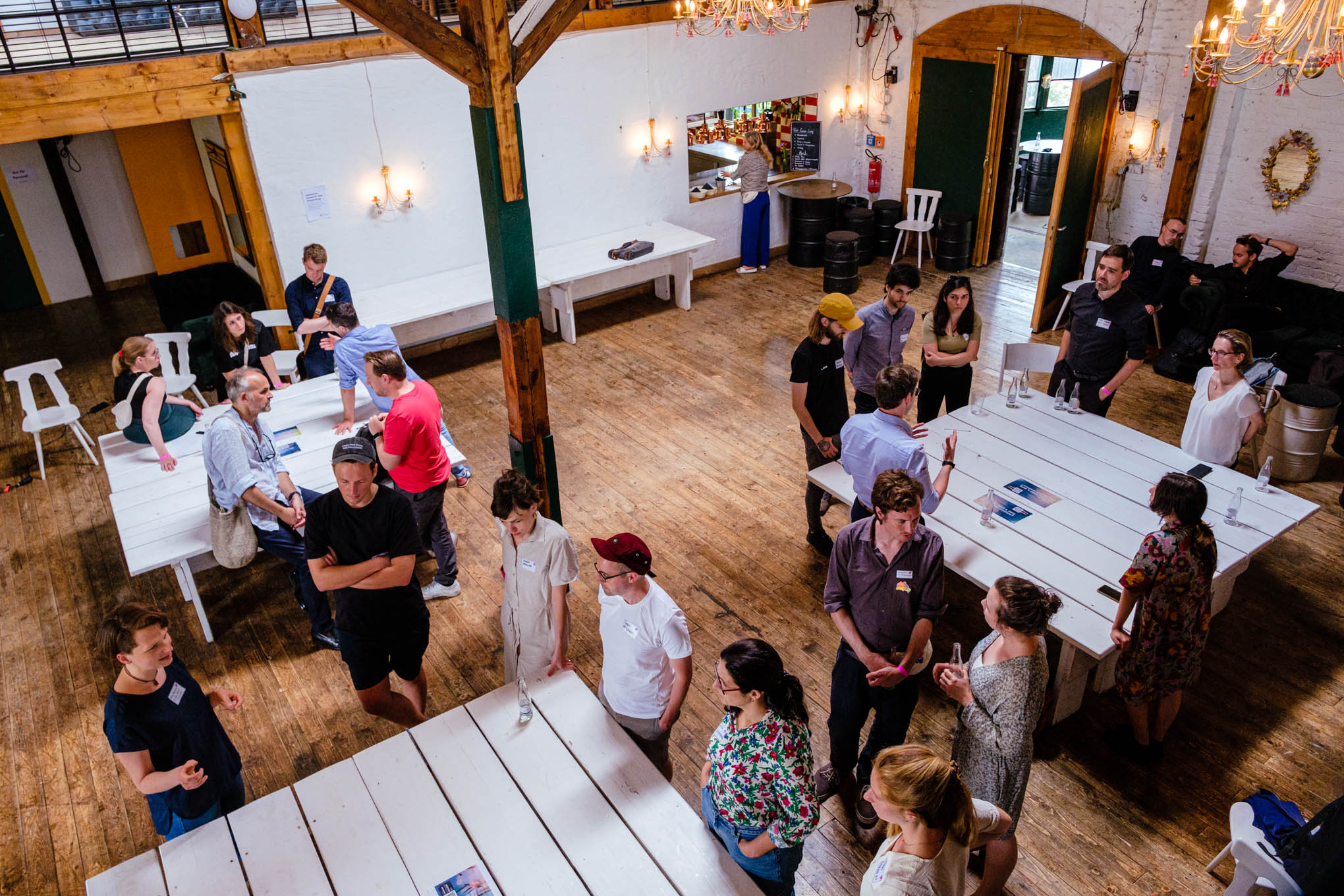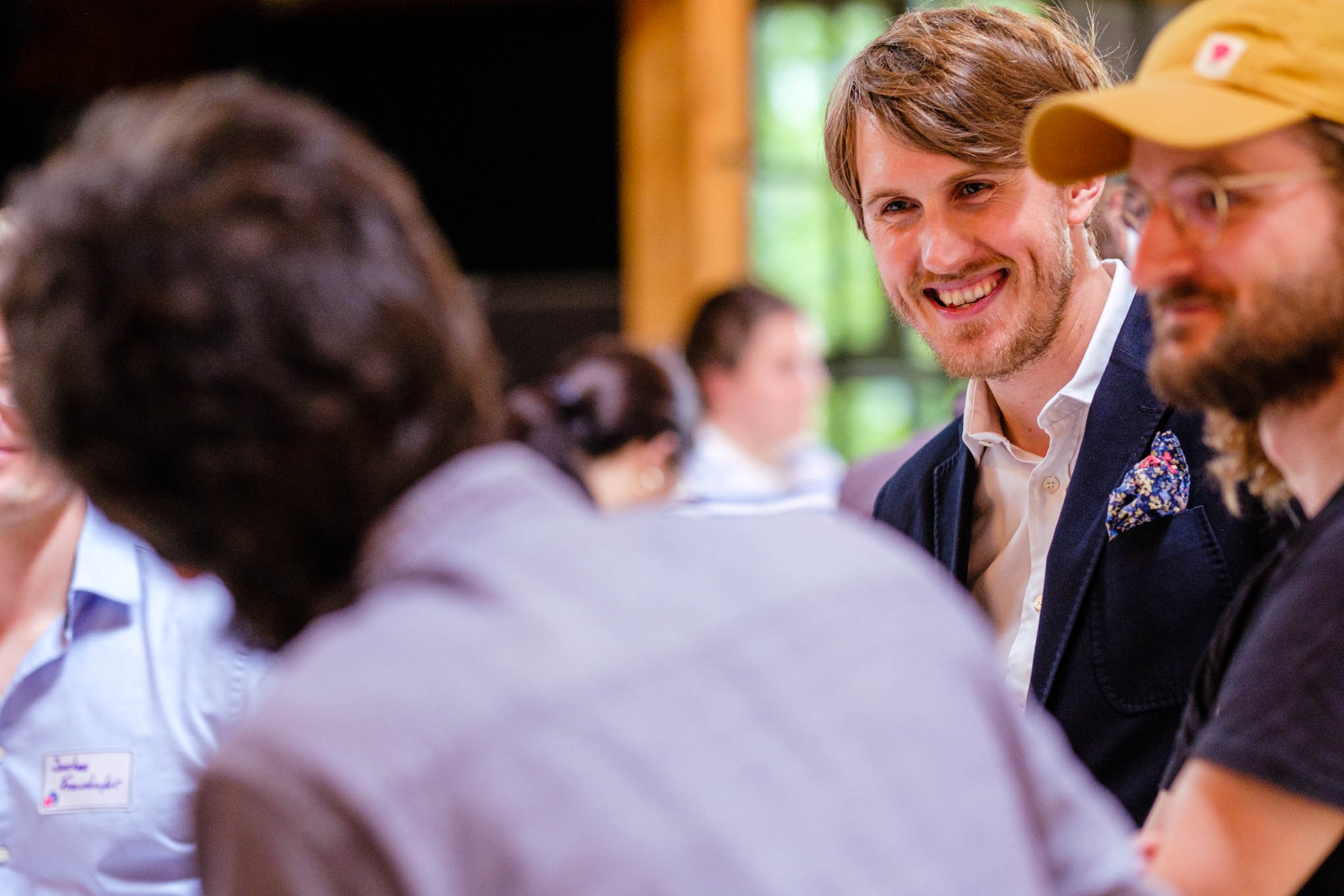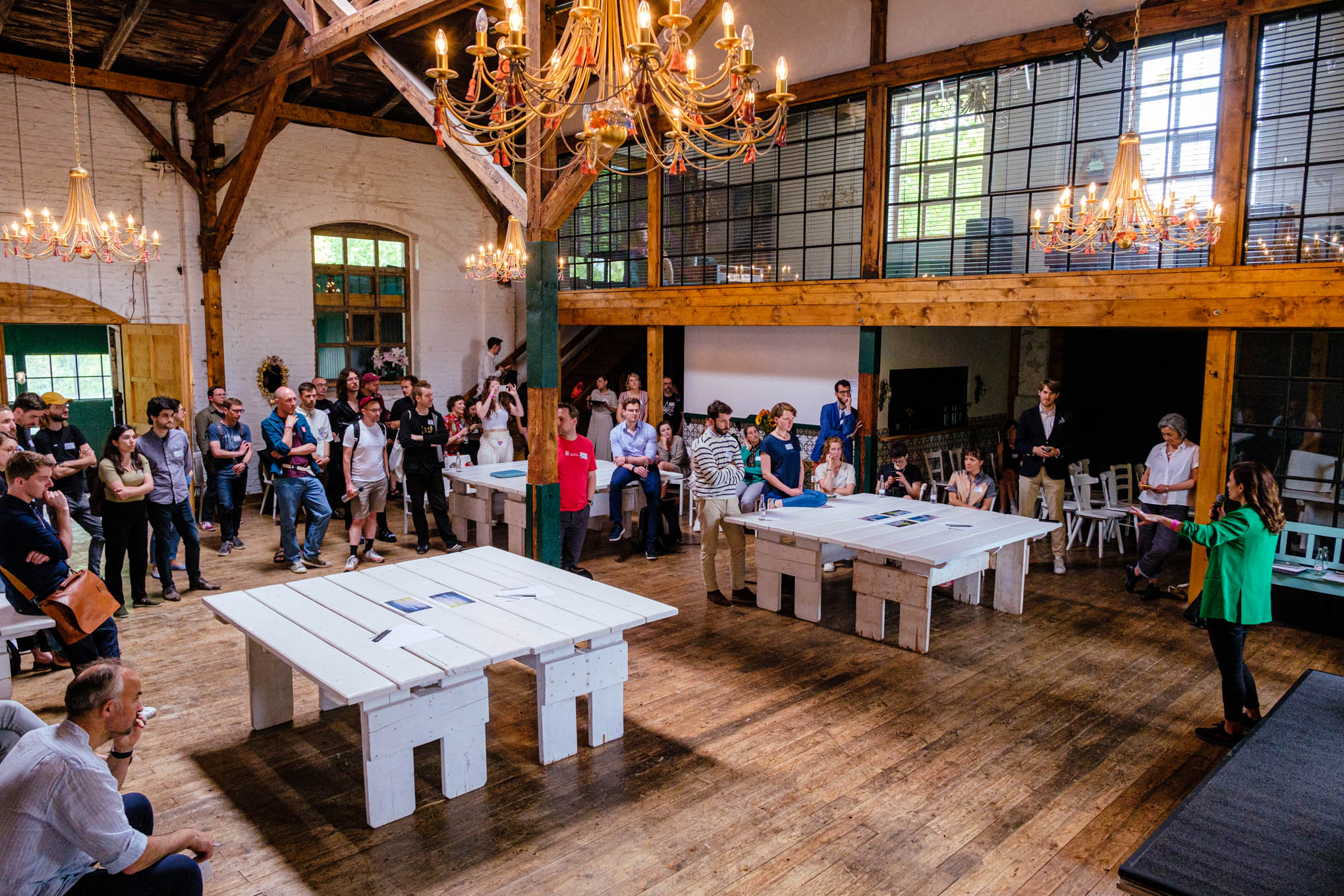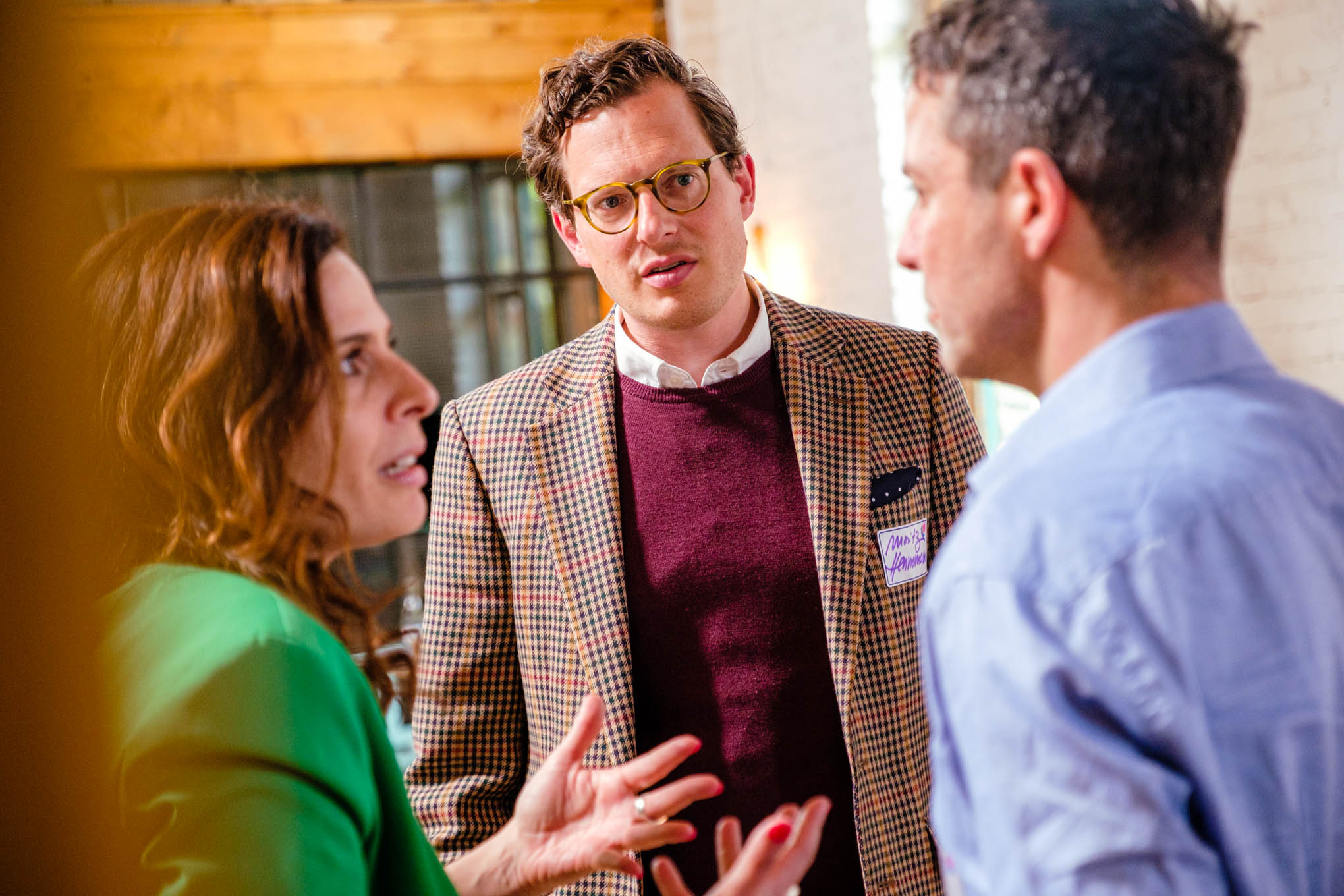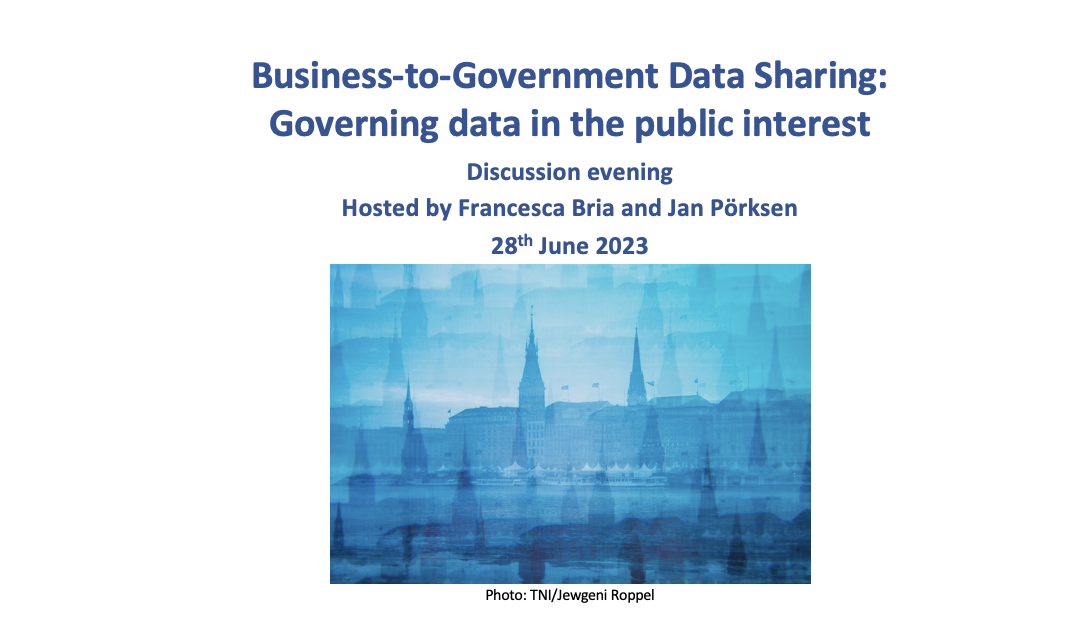Notes from a political discussion evening in Berlin, 28 June 2023
[Video/Photo material available at end of page]
Data is a key element to creating more democratic and sustainable futures. To this end though, there needs to be a better understanding and most of all a better framework to ensure a governance and sharing of data in the public interest – and blueprints for how to share data between the private and the public sector.
These were some of the main take-aways from the event that THE NEW INSTITUTE organized together with the city of Hamburg in the context of The New Hanse project on data sharing in the public interest, led by digital policy and innovation expert Francesca Bria. The event at the Landesvertretung Hamburg in Berlin drew a diverse audience, ranging from the federal German ministries of Interior, Justice and Work and Social Affairs to KfW bank, from NGOs like the Friedrich Ebert Foundation and the Open Knowledge Foundation to start-ups, from academics and technologists to journalists.
One aim of the event was to introduce the work the team of The New Hanse has done on data sharing in a city context with a practical Data Challenge in the field of micromobility. In his opening remarks, Jan Pörksen, head of the Senate Chancellery of Hamburg, introduced the Hamburg specific use case while also pointing out that it touches on issues that go far beyond the local scale: “the regulatory and the questions we have to deal with, are huge: data protection, compliance questions.” These and questions around ownership models, infrastructure and scalability are the structural issues discussed in the Data Commons Working Group.
Francesca Bria reminded us about the main task of the New Hanse’s Data Commons Working Group that is “to advance the understanding of how urban data sharing from private providers to government should happen, with a fair and sustainable data governance, including the role of data intermediaries to help solve some of the technical and regulatory issues connected to data sharing”. The project, learning from the Hamburg experiment, aims to develop legal, regulatory and technical blueprints which can be used by other cities within the EU and beyond.
“Would a universal data sharing law solve the value of data and the risk dilemma? And could this bring forward the concept of data commons and its immense value for society?”, asked Max von Grafenstein of the Einstein Center Digital Future and the Alexander von Humboldt Institute for Internet and Society in his provocative presentation, focusing on current challenges in both voluntary and mandatory data sharing.
Javier Orozco-Messana of the European Commission’s DG CNECT unit Technology for Smart Communities agreed: “We have to break data market control by Big Tech companies”, he said in his remarks, “we want to avoid big American companies locking in not only the power of our data but also our services.” Instead, he emphasized, very much in line with The New Hanse philosophy, “we want to make the EU the next power in the market.”
The panel discussion among Jan Pörksen, Francesca Bria, Sille Sepp, director of operations at MyData Global in Tallinn, Ana Dujic, Director General at Digital, Work, Society, Federal Ministry of Labour and Social Affairs and Eileen Fuchs, Head of Unit Data Policy at Federal Ministry of the Interior and Community, explored questions of the legal, technical and technological infrastructure necessary for next-generation data policies – trust, Sille Sepp emphasized, is central to enable this on a practical level.
“We need more data, we need better data, but we also need more trust in data sharing”, Ana Dujic seconded. “If we want to maintain the competitiveness as global leading economies, it comes down to the labor force: How open is it for digital transformation, how able are companies to use data and AI. There is a long way to go and little time.” In the words of Eileen Fuchs: “The goal must be: Public money, public data”
The Data Commons Working Group met on the next day to continue the work on the Data Sharing for the Public Interest blueprints to be presented in the fall. Francesca Bria summed up the task ahead:
“The key challenge is to show that data is not just a smart, radical bureaucracy, but can really make the life of people better!”
Slides presented, 28 June 2023
Read the full article with a summary from next day's working session here.




